Cape Maclear (also known as Chembe) and Monkey Bay are two villages located south of Lake Malawi. They are one of the most popular destinations on Lake Malawi, because there is the national park and a very authentic African and local atmosphere. Located a relatively short distance from Lilongwe, they are also one of the most popular weekend destinations for people living in the capital.
Historically, in Cape Maclear we find the first settlement of the Scottish Anglican missionaries who arrived in the country at the end of the 19th century (1875), but today there are hardly any remains. The missionaries moved north in search of higher altitud to protect themselves from the malaria mosquito, eventually establishing their mission in 1894 in the town now known as Livingstonia (if want to know more about our experience, you can click here).
Monkey Bay stands out for being the departure port of the Ilala ferry that sails weekly across the lake passing through different towns in Malawi and Mozambique such as, for example, Likoma Island (if you want to know more about the days we spent on this island, click here). While Cape Maclear, located 18 kilometers to the north, is a town where you will find many accommodations on the lake front, and a very hospitable local population that is mainly dedicated to fishing.
These two villages are ideal for relaxing and swimming in the third largest lake in Africa, and discovering the great marine biodiversity hidden in the waters of the small islands in the bay, such as Thumbi or Domwe, or in the clear and calm waters of some part of its shore, like Otter Point. Lake Malawi National Park is the first freshwater national park in the world, a World Heritage Site and is considered the lake with the most different species of fish in the world.
In these two villages in southern Malawi, you will discover what the local life is like for thousands of Africans who live off the waters of their lake, with spectacular sunsets in a fantastic atmosphere of local African culture that you cannot fail to discover in your trip to Malawi.
How to get there?
To get to the town of Cape Maclear, you have to go through Monkey Bay first. Between these two towns, there is a distance of 18 kilometers where you will cross the land part of Lake Malawi National Park, with a narrow but very beautiful road. You will not have to pay any entrance fee to take this road that takes place inside the park. This road, known as the T378, is taken just before Monkey Bay, so if you just want to go to Cape Maclear you won’t need to enter to Monkey Bay. When we went there, the start of the T378 was under construction and we had to detour inside Monkey Bay (it was signposted) to rejoin the same road that took us to Cape Maclear
Instead, to get to Monkey Bay you mainly have three options. If you come from the south, that is from Blantyre, Liwonde or Zomba, you must take the M1 – in the case of Blantyre – or the M8 – in the case of Liwonde or Zomba – until you reach the Chingeni toll booth. 4 kilometers after the toll, you will have to turn to your right following the M5 road for 65 kilometers until you reach the town of Golomoti. There, you will turn right onto the S127 towards Kapiri, and once you reach this village, you will follow the road that will become the M10 until it ends at a junction, where Monkey Bay will be 10 kilometers to your left-handed. This is the best option if you are coming from the south, where you will pass through different villages and you will find a road with different potholes and heavily traveled by bicycles and people, so you will have to go slowly and be extremely careful. There is also the option of getting to Monkey Bay via the M10 which exits right next to Liwonde, but despite being shorter in kilometers, it was not recommended to us due to its poor condition.
If you are coming from Lilongwe, the best option to get to Monkey Bay is to go down the M1 that goes to Blantyre (road in very good condition, and with some mobile speed cameras that you will have to watch out to not get fined), and just past Dedza, about 15 kilometers south, you will reach the town of Lizulu where you will have to turn off and take the S127 road, a scenic road in good condition that descends from the mountains to the plain of Lake Malawi. You will arrive at the town of Golomoti, and from there you will have to follow the route we explained in the previous paragraph.
If you are coming from the north, that is, from the M5 route that runs along the lake (Nkhata Bay – Nkhotakota – Benga – Salima) and you are not going to Lilongwe, you can continue after Salima on the same M5 road for about 65 kilometers until reach a junction near the Mua Mission Hospital where you will turn left to drive on the M10 for about 60 kilometers passing the towns of Kapiri and Chantulo before reaching the end of this road where you will find a junction that you will have to go left and travel the last 10 kilometers before you reach Monkey Bay. It is the same road you would take if you were coming from the south, therefore, we warn you that it is a paved route but with quite a few potholes that will make you be alert to not have any scares with the vehicle.
Finally, you can arrive also to Monkey Bay by the Ilala ferry which travels weekly to different towns on Lake Malawi and starts and ends in this coastal town, where you will find an immigration office where you can stamp your passport if it’s necessary. Here, you have the timetable and the different villages where stop the ferry:
What to do in Cape Maclear and Monkey Bay?
Cape Maclear and Monkey Bay are located right on the waters of Lake Malawi and are one of the busiest destinations for the few tourists you will find in the country. There, you won’t find ATMs, so we recommend you bring cash in case you want to do some of the activities. We highlight the following:
Swim in the waters of Lake Malawi
Lake Malawi is the ninth largest lake in the world, and the third largest lake in Africa. Therefore, swimming in its waters is an experience you cannot miss. Consider that the lake occupies almost 25% of the entire country. Malawi is an elongated country that follows the shore of the lake, so you will find different places to swim, such as Ngala Beach or Nkhata Bay (if you want to know our experience in this coastal town, you can click here). But two of the most beautiful places to enjoy a swim are mainly Monkey Bay and Cape Maclear.
The local population lives mainly from the lake. There, they shower, wash dishes, wash clothes and extract fish, their main source of wealth. However, in many places you will find clean areas to take a bath, mainly where many of the accommodations are located that try to keep the area free of any type of waste. For example, at the Musafa Eco Lodge in Monkey Bay there is a very beautiful beach for swimming in Lake Malawi.
The only thing you need to be aware of is the issue of bilharzia, also called schistosomiasis. It is a disease caused by a worm that lives in calm waters such as lakes, and that causes parasitic infections in the human body. This disease can cause diarrhea, fevers, blood in the urine or abdominal pain, among others. It is said that if you get infected with bilharzia, you will notice itchy skin. One of the ways to prevent this disease is to take pills that are sold in the same pharmacies in Malawi known as Praziquantel. Depending on your body weight, you will be given a quantity of pills that you will have to take between 6 and 8 weeks after your last swim in the lake. You can buy them in pharmacies in the country without any kind of prescription and at an affordable price (around 1.50 euros). For more information about this disease, you can click here.
Discover the local village of Cape Maclear and interact with its people
In the town of Cape Maclear we discovered one of the liveliest towns in Lake Malawi. In this town, on the one hand, you will find a whole series of accommodations that are located on the first line of the lake and where it will be normal to see different people passing by who offer you different tourist activities such as taking a boat trip around the lake, or visiting some of the islands.
But, on the other side, there is a village full of local life where you can immerse yourself in the day-to-day life of the African rhythm. There, you can hear the laughter of playful children, watch fishermen mend their nets, watch women wash clothes and dry fish, watch a game of bao, a very characteristic board game in this part of Africa, listen to the rhythm of African music and enjoy the warmth of the people of Malawi.
The people are very hospitable, and you can chat with them for a while. Of course, we recommend that you learn four basic notions of Chichewa to address them, and some sleight of hand or magic or some song in order to interact in a more dynamic way. Their joy, their tenderness and their kindness are commendable, and it will surely be one of the most beautiful memories you will have of your trip to Malawi.
As always, we recommend that this interaction be sincere, that is, without giving candy or objects to children in order to avoid this charity that we consider not good to practice on the African continent. At first, many children will probably ask you for candy, but if you smile and talk to them, they will soon forget about it and be more interested in you and what you teach them or tell them.
In addition, in the local village you will be able to buy souvenirs from the various street vendors who will approach you, walk through small labyrinthine streets and observe monumental baobabs that suddenly appear next to some of the houses, building a very beautiful background of nature and simplicity. A unique experience!
Watch a sunset from Cape Maclear
The sunset you see from Cape Maclear is truly spectacular. At that time, there are many boats that arrive from fishing, and many more children who take the opportunity to swim and play after spending the day at school. And, precisely, all this happens around you as the Golden hour begins… some unforgettable scenes!
We recommend that every day you spend in Cape Maclear you never fail to miss the moment when the sun hides behind the waters of the third largest lake in Africa. We don’t know if it’s because it’s Africa or for what reason, but orange and reddish hues form, mixed with water, are fascinating.
Therefore, one of the activities that you cannot miss in Cape Maclear is to watch the sunset from the shore of the beach or from one of the different bars and restaurants that you will find on the front line of the lake.
Sail through Lake Malawi National Park
The Cape Maclear area is an area declared a national park, both on land and in water where we can observe different species of endemic fish. In fact, Lake Malawi is considered the lake with the most different species of fish in the world. As a result of this exceptional diversity, the lake is considered a global biodiversity treasure because almost all the species it contains are found nowhere else on the planet.
The entire park and marine environment of Cape Maclear is a real aquarium of tropical fish in crystal clear waters that offer a kaleidoscopic vision of colors. Also, you can find other animals such as baboons, antelopes, and a great variety of birds, such as eagles that live there taking advantage of the great variety and quantity of fish they have for their diet.
One of the reasons that can explain this great biodiversity is the fact that Lake Malawi is very far from any ocean or body of water. This isolation led to an exceptional example of biological evolution with the presence of more than 500 species of cichlids (rockfish, known locally as Mbuna) that evolved from a common ancestor over the past million years.
Just off Cape Maclear, you’ll find the islands of Thumbi, Domwe and Mumbo which are also part of the park. Consider that to do any of the activities in Lake Malawi National Park you will have to pay an entrance fee of 10 USD per person per day. In this link, you will find more information regarding prices.
One of the most common excursions is to take a local person to take you by boat around the different islands, where you can see the work of the different fishermen, watch the famous eagles as they hunt fish and swim in some of the most beautiful places to snorkeling that we will discuss in the next section. We negotiated about 22 euros per person for a tour of approximately two hours through the waters of Lake Malawi National Park.
Finally, one of the bad news about Lake Malawi is that almost 10% of all the fish species we find there are in danger of extinction. The main causes are human activities such as deforestation, since what happens on land also affects the lake. The increase in agricultural activity by the lake has caused a lot of sediment to end up in the water and affect the survival of algae, essential food resources on which fish depend. Another cause is overfishing, which causes many species to be at risk and creates great tension among the lake’s fishermen as they depend on fish for their livelihood and food. I recommend that you read this article written by Olaf Weyl, President of the International Union for Conservation of Nature (IUCN) Aquatic Fish Specialist Group, which explains very well the main current problems in Lake Malawi.
Snorkel at Thumbi Island and Otter Point
As we mentioned in the previous point, Lake Malawi is one of the lakes with the most biodiversity of species on the planet. These species are incredibly different from each other, in size, color and behavior. In addition, they all take care of their offspring as they carry and protect the young in their mouths until they are ready to swim and fend for themselves.
For this reason, one of the best ways to capture this biodiversity is to snorkel at some of the points in Lake Malawi, which you will find mainly at Cape Maclear. The best places for snorkeling are undoubtedly the islands of Domwe, Thumbi and Otter Point. Otter Point can be reached on foot, as it is located on the west side of Cape Maclear. There, you will have to pay the entrance to the park and then you will find some rocks where you can swim through its crystal clear waters in search of the different species. By going there by boat, we avoided paying the park fee.
While it is true that for us it is not the best place we have snorkeled in Africa, as we could highlight other points such as Kisite NP in Kenya (if you want to know more information about this place, you can click here); diving in the waters of Lake Malawi is a beautiful experience to observe the great diversity of small species of cichlids (rockfish) and colors that you can find on its seabed.
Relax in front of the waters of Lake Malawi
Another activity you can do in Lake Malawi is to relax and unwind in front of its waters. The Musafa in Monkey Bay is a very good choice as it is in a more secluded and quieter environment. But in Cape Maclear you will also have some privacy in the accommodation, where you can enjoy a good read, or a good beer in some of the different establishments that are located on the lakefront.
For this reason, disconnecting for a few days at Lake Malawi during your vacation is a great option that you can combine with the different activities that we have proposed in this section.
Where to sleep in Cape Maclear and Monkey Bay?
Cape Maclear is one of the most popular tourist destinations in Lake Malawi. There, there are many accommodations. On the other hand, in Monkey Bay the offer is more limited. The main accommodations we highlight from these two places are:
– Musafa Eco Lodge: This lodge is located on the outskirts of Monkey Bay, right across from Lake Malawi. It is reached by a small road that is just to the right of the entrance to the Ilala ferry dock. There, you can enjoy from private rooms, shared rooms and camping on the sand on the first line of the lake (for a cost of 3,500 MWK per person, around 3.80€). They have a restaurant with very good food, a bar with beers, and you can also use some of the canoes they have to navigate the lake. In addition, in the evening they usually make a fire on the beach where you can see a starry sky (unlike the accommodations in Cape Maclear which are usually next to each other, this one is completely isolated) and enjoy a good African evening. For more information, you can see their website here.
– Warm Heart Adventure Lodge: This Cape Maclear accommodation is one of the best value options you will find on the front line of Lake Malawi. It has different types of accommodation, ranging from shared rooms to private cabins. In addition, they have a reception from where you can do different activities, very well advised by Kay. We were there for 3 nights, and it was a fantastic experience. For more information, you can see their website here.
– Chembe Eagles Nest Resort: This accommodation in Cape Maclear is located a little further from the village. It is one of the few accommodations where you can camp with your tent for a price of 10 USD per person. They have a swimming pool and offer different activities such as catamaran trips on the lake. For more information, you can click here.
Our route
DAY 1: After our 3-week volunteering experience in Nchalo with Francis and his organization, it was time to leave southern Malawi behind (where we would return later with Susanna who was arriving in Lilongwe in a few days) and to see Lake Malawi for the first time, one of the largest lakes on the African continent.
Since we had already been in the country for almost 1 month, it was time to extend the visa at some of the country’s Immigration departments, and precisely at Monkey Bay, as it is the departure point for the Ilala ferry that crosses the entire lake with stops also in Mozambique. there was one. So, we said goodbye to the south to go to this town that was right next to the waters of Lake Malawi.
The journey passed through narrow roads full of people on both sides walking towards different local markets that were held that Monday in some of the towns we passed through. Apart from that, there were also many bicycles. Malawi is a country where this two-wheeled vehicle predominates.
After more than 3 hours of driving, where the road was increasingly full of potholes (especially the last 70 kilometers that go from Golomoti to Monkey Bay via Kapiri, Chantuli and Chirombo), we arrived at Monkey Bay. There, we drove to the dock of the port so we could go and look for Immigration, and after asking a gentleman, he opened the door for us and stamped us our passport. Now, we had one more month to discover Malawi.
With this bureaucratic procedure resolved, we went to the Musafa Backpackers to look for accommodation. This one was located right in front of the calm waters of the lake, and they let us camp on the sand with our car, right in front of the lake and next to an old boat that was anchored there. A spectacular place to spend our first night by the lake.
That afternoon, after volunteering and the morning drive, we took it completely easy. We swam in the lake, even took some free boards from the lodge to go into the lake, and had a few beers with some local girls who were celebrating that one of them had come to see them from London.
In addition, in the accommodation there was also a group of Spanish pediatricians who carried out part of their professional practice at the Lilongwe General Hospital from an entity based in Zaragoza; and a man from Arizona, Mark, who was traveling on his motorcycle from South Africa in a northerly direction via the east coast. He could speak Spanish because he had worked and lived part of the year in Guatemala, and we were also sharing travel experiences and recommendations.
We had dinner in front of the lake, and then the lodge built a fire where we could enjoy music, drums, guitar, visits from people who lived in Monkey Bay and conversations until the wee hours of the morning about Africa and life. An idyllic evening in such an exceptional setting as Lake Malawi.
DAY 2: After the previous night, we woke up peacefully right in front of the waters of the lake. We had a leisurely breakfast and took advantage of the warm weather to swim again. Mark was saying goodbye to us as he would continue his route north and the Spaniards were returning to the capital to continue their professional internships, while we took the opportunity to put order in our traveling house and prepare lunch. After lunch, we let Mufasa Backpackers to drive the short distance from Monkey Bay to Cape Maclear to settle in for 3 nights in this beautiful local lakeside town which is also a national park.
From Monkey Bay to Cape Maclear there is a distance of 18 kilometers, but at the beginning the route was under construction so it took us almost 1 hour to do this whole route that crosses the national park of Lake Malawi and that runs through a beautiful landscape
At Cape Maclear, we were met by Kay at her Lodge which was located in front of the lake. We would spend 3 nights there, with an exceptional cabin and a town and people that completely fell in love with us.
Since we arrived in the middle of the afternoon, we took the opportunity to have a bath next to all the local people who were looking at us curiously. Many of them use the waters of the lake for their daily routines, such as showering, washing dishes, washing clothes, cooking… and we were there in bathing suits using the waters of the lake to enjoy a bath and a magnificent sunset. Really, we give very little value to having water in our homes, to open the tap, to use a dishwasher or a washing machine…
The sunset was spectacular, and we used our knowledge of Chichewa that we had learned during our volunteering to talk to the families who lived by the lake. The people were all open-hearted: friendly, empathetic, smiling and very hospitable. There was something special about Lake Malawi.
In the evening, we were able to talk to Julita, a woman who was also sleeping in our accommodation and who was from South Africa. She was traveling alone, with her 4×4 and she intended to arrive in Egypt to discover an African reality that, according to her, was very different from South Africa. We agreed with her that the next day we could go sailing on the lake together if the price was right, so we went to bed early to rest in a fascinating environment.
DAY 3: We woke up in front of the waters of Lake Malawi. It was a bit windy that day, so it wasn’t possible to canoe for ourselves to the island right in front of us – Thumbi Island. In addition, right in front of Cape Maclear Bay, we also find another island such as Domwe Island or Mumbo Island, and a well-known point for snorkeling known as Otter Point, which is located right in next to the first settlement founded by the Scottish Anglican missionaries.
Julita was waiting for us to go by boat, but once we talked to the captain, we saw that the price was too expensive for our budget. He recommended us to a friend of him, Isaac, with whom we reached an agreement because for the price of 40,000 MWK (about 22 euros per person) he takes us to the island of Thumbi to see the different eagles that live there, go to snorkel at Otter Point and back to accommodation, with the national park entrance fee already included.
So, we went sailing with Isaac on Lake Malawi in his little wooden boat. Along the way, we met many fishing boats collecting nets or throwing fishing rods in designated areas. For these towns, fishing is the main source of wealth, as it is their main source of food and income through the sale of fish.
Our first stop was the island of Thumbi, from where we could see different eagles that responded to Isaac’s whistle and came out of the dens located among the trees on the island. Some of these were also used to hunt some small fish that they observed from their zenith view. We stopped next to some small rocks on the island so we could jump into the water and snorkel in one of the most biodiverse national parks on the planet.
Afterwards, we got back on the small boat to sail to the Otter Trail area, which was characterized by its clear and transparent waters and from where we could enjoy, again, snorkeling. There was a lot of fish diversity but probably it wasn’t one of the most spectacular areas we’ve snorkeled in Africa.
The wind was blowing more and more intensely, and the boats were rocking more and more. It was time to return to our accommodation, sailing before next to the first settlement of the Scots in Malawi of which only ruins remain. They settled there in 1875, until after six years they left because of the problems they had with the malaria mosquito.
We arrived at the accommodation at lunchtime, after enjoying a route through Lake Malawi with Isaac and being able to discover one of the largest lakes on the planet. In the afternoon, it was time to leave the waters of the lake to walk between the small streets and the shores of the village, where there was a lot of local life.
We walked along the main dirt street of the village, passing by different food shops and by the ancient and majestic trees that stood right next to the houses of the inhabitants of that village. Along the route, we will find many everyday scenes of African everyday life: people chatting, children playing to put sand in an empty bottle while trying not to be hit by a ball made of clothes, young people listening to music on their mobile phones, girls combed among themselves, women sitting on small steps looking at the people who passed by and, especially on the beach, fishermen mending their nets or painting their boats, women and girls washing clothes, the little ones jumping into the water where they could touch the ground with their feet and many wooden constructions (as if they were tables) that were used to dry the freshly caught fish. There were also areas with fire on the floor that were used to smoke the fish, to prolong its useful life.
We were pleasantly surprised by how much local life there was in Cape Maclear, a town that featured in many tourist guides and therefore we thought would not have the charm of the rural people we had found elsewhere. But we were wrong. If you walked in the opposite direction to where the different lodges were, and entered the narrow paths of the village streets, you entered a very hospitable local world that was very beautiful to see and experience. In this place, interacting with the local people is very simple if you do your part as well.
After this amazing walk around Cape Maclear, we walked back to the lodge and prepared a potato omelette for a special guest. Toni Ninja, a boy from Castelló, whom we met weeks ago at the border between Botswana and Zambia, and who was traveling on a road motorcycle from South Africa to Spain via the east coast. Just that day he had crossed the border from Mozambique to Malawi, and he had told us that he would arrive at Cape Maclear and in this way, we could share one day of our travels together.
After dinner had already been made and the sun had fallen behind Lake Malawi and night was beginning to appear, Toni still hadn’t arrived. He sent us a message saying that the road was full of mines, that is, holes, and we remembered our journey during the previous days on that road. We went for a beer, until after a while we heard the rumble of a motorcycle and saw Toni arrive.
He stayed two nights in the accommodation where we were also staying, and we were able to share an evening of adventures, experiences, and views on life. When you travel, one of the greatest treasures you encounter are the other travelers you meet along the way. You may only be with them for a few hours (like Mark from Arizona) or a few days, but immediately there is a special connection that, many times, when you are in your routine, it takes you many more days and time to find. On the other hand, when you travel, we don’t know if because of the fact that we feel reflected in it or if we find ourselves alone with someone who has the same concerns, you open up completely and enjoy a great intimate and enriching conversation. It has happened to us many times during the trip, and with Toni it was no exception. It was time to go to sleep and rest to spend the next day together in a special village of Lake Malawi.
DAY 4: Today was the second awakening on the shore of Cape Maclear, but it seemed like we had already been there for more than a week. After breakfast, we went to see Toni who was still in bed after the long drive he had made the day before. We let him sleep a little longer, and we relaxed by swimming in the lake and, like good Africans, watching the time pass, an activity that we are not at all used to in Europe.
We were talking to Julita who had asked us who that green motorcycle with Spanish license plate belonged to. We explained to her that Toni had come, and we agreed that we would all go to lunch together somewhere in town.
After Toni woke up and went for his first swim in Lake Malawi, we walked until we found a place to eat. There, we met two other travelers, Manel and João, from Portugal, who were traveling by public transport carrying out a sabbatical year project in Africa while sharing it on their social networks. Very nice people who recommended us to travel to Likoma Island as it had been one of the best experiences (so far) of their trip. So, with a table there was a woman from South Africa, a motorcyclist from Castelló, us and a Portuguese couple sharing the same hobby: traveling and discovering the world.
In the afternoon, we told Toni that we would take him as a guide to some places in the town, and that’s how we took him to discover the most local part of the town. There, you stopped feeling like an outsider and felt like one more of them, playing with them, dancing and enjoying their happiness and simplicity. We continued walking through the narrow and labyrinthine streets that took us to the place where all the fishermen were drying their fish, while others were leaving for another night of fishing. There, Toni gave us two bracelets that said Malawi and we continued back, receiving smiles from adults and children we crossed. Toni was clear: he wanted to go back there with his green motorcycle and his helmet, so that the children could see him with his house, which was his own motorcycle.
We returned to the accommodation, and while he left with the motorbike, we enjoyed the last sunset of Lake Malawi. The next day, it was time to say goodbye because, after two days, Susanna, Esteve’s sister, was arriving in Lilongwe and we were going to pick her up to start a two-week route for this country that was captivating us so much.
After a while, Toni arrived very happy. He showed us some videos where we could see some of the children with their helmets on, some mounted on the motorcycle, and many were amazed because they had probably only seen vehicles like Toni’s in the movies.
We went to have a farewell dinner with Toni Ninja, and we exchanged different information about our routes. And when you find travelers, you make the most of the time with them because you know that, afterwards, each one follows his own path… until you meet again in another place on the planet.
DAY 5: Today we had to make our way to the capital, Lilongwe, which we had not yet set foot on. In Africa, we tried to avoid the capitals of the countries because they are usually synonymous with large crowds, and we preferred tranquility, and more, traveling with our house on top, our car. So, we looked for accommodation on the outskirts of the capital.
We woke up, and Julita had almost everything ready to go. Toni was still sleeping, so we said goodbye to her. After a few minutes, Toni got up and prepared everything to continue on the route, also towards the north of Malawi. We also said goodbye to him. Hours later, we received a message from Toni telling us that on the way he had met Julita in the car and that they said goodbye with the sound of horns from each of their vehicles.
We were left alone again, the two of us, after having lived a few intense days with different travel experiences and many experiences and memories with the local people we met and with whom we shared one of the most special virtues we have (and which we often do not take advantage of): time.
We said goodbye to the southern part of Lake Malawi and headed back into the mountains (on a very beautiful drive between Golomoti and Lizulu) to reach the city of Lilongwe, where we took the opportunity to do some shopping at the supermarket and arrive at our next accommodation, waiting for Susanna to arrive after a few hours, who was already flying to Malawi. A new visit we received during our gap year in Africa!
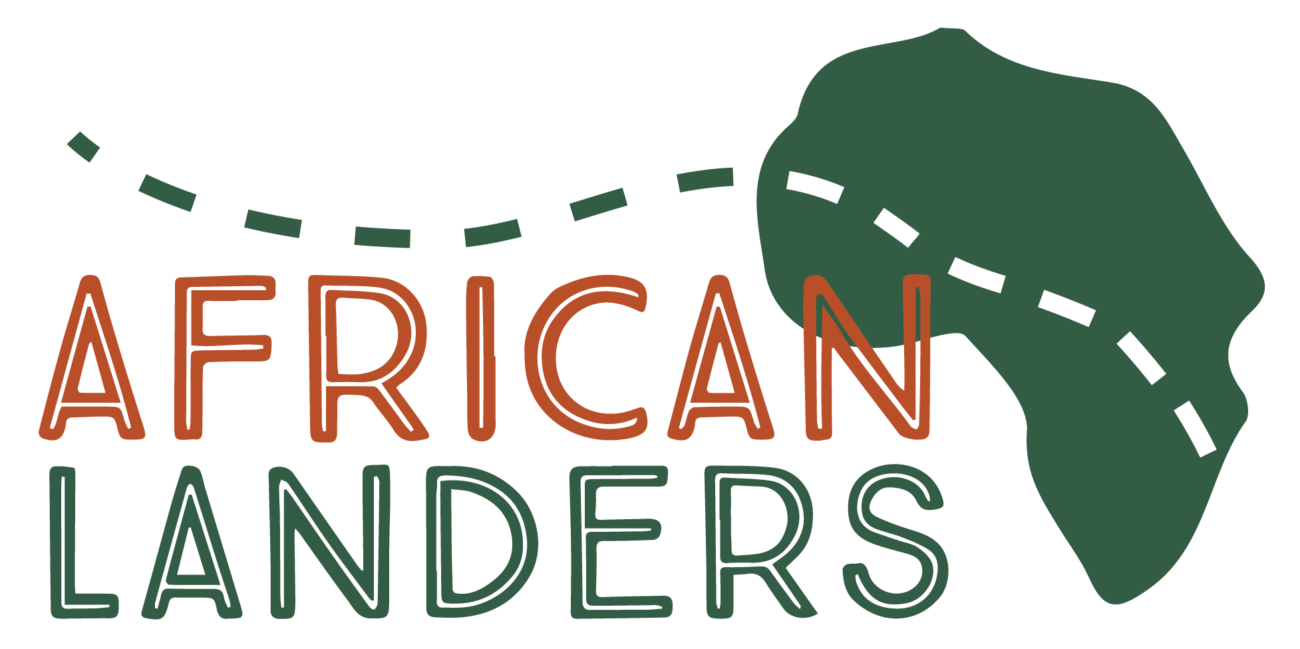
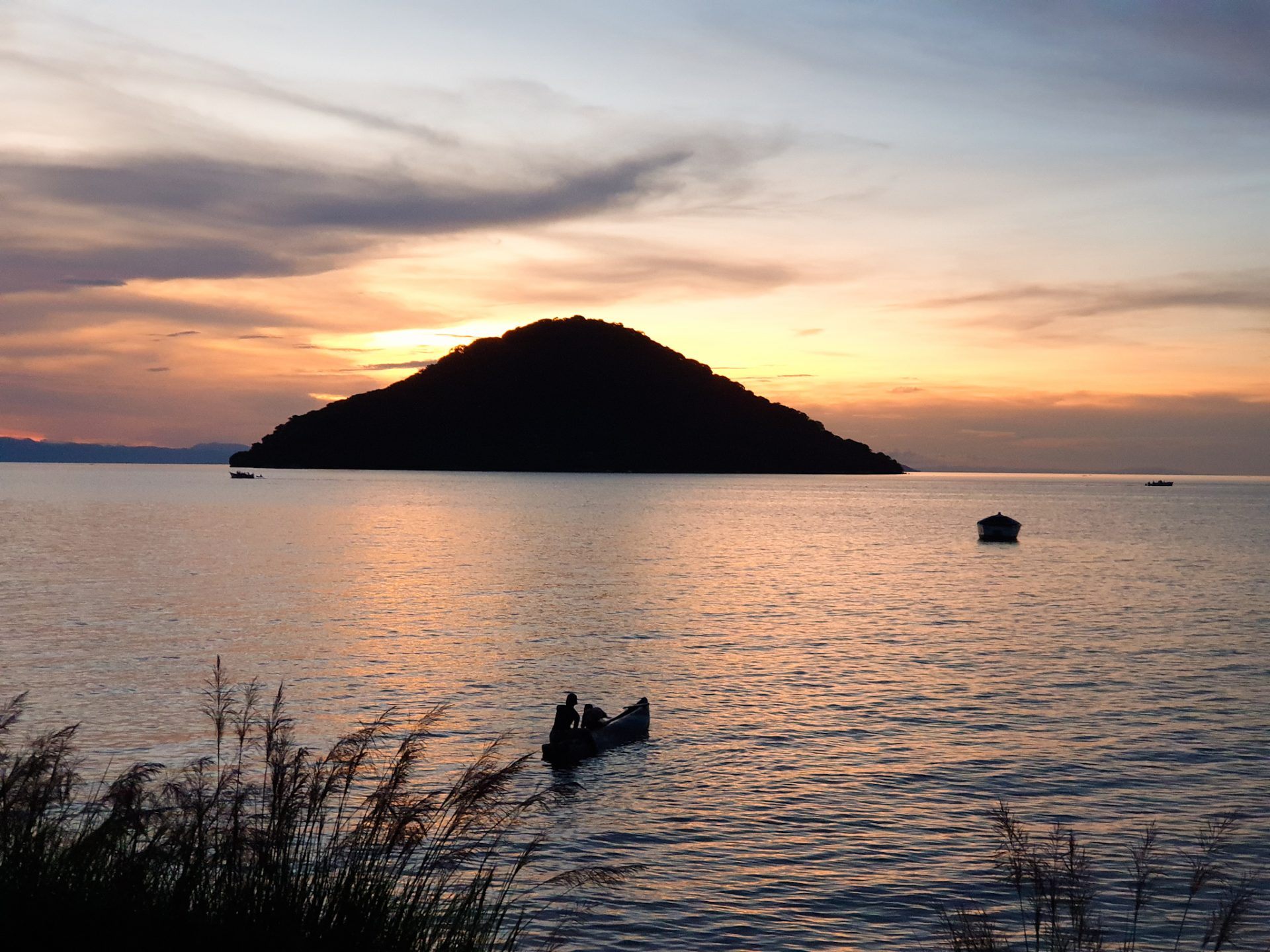
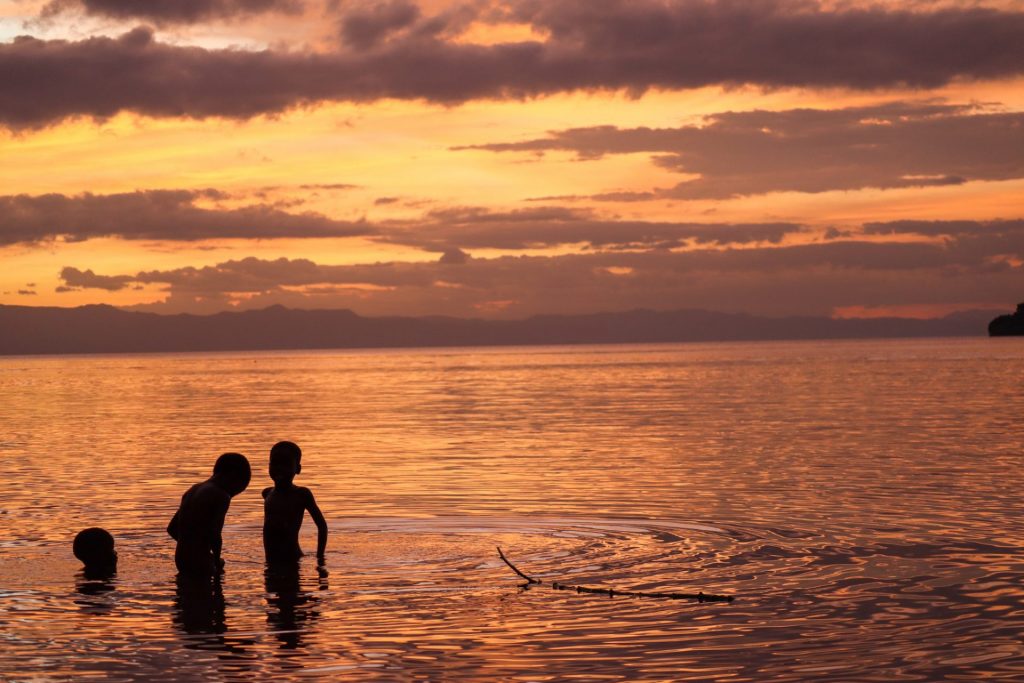
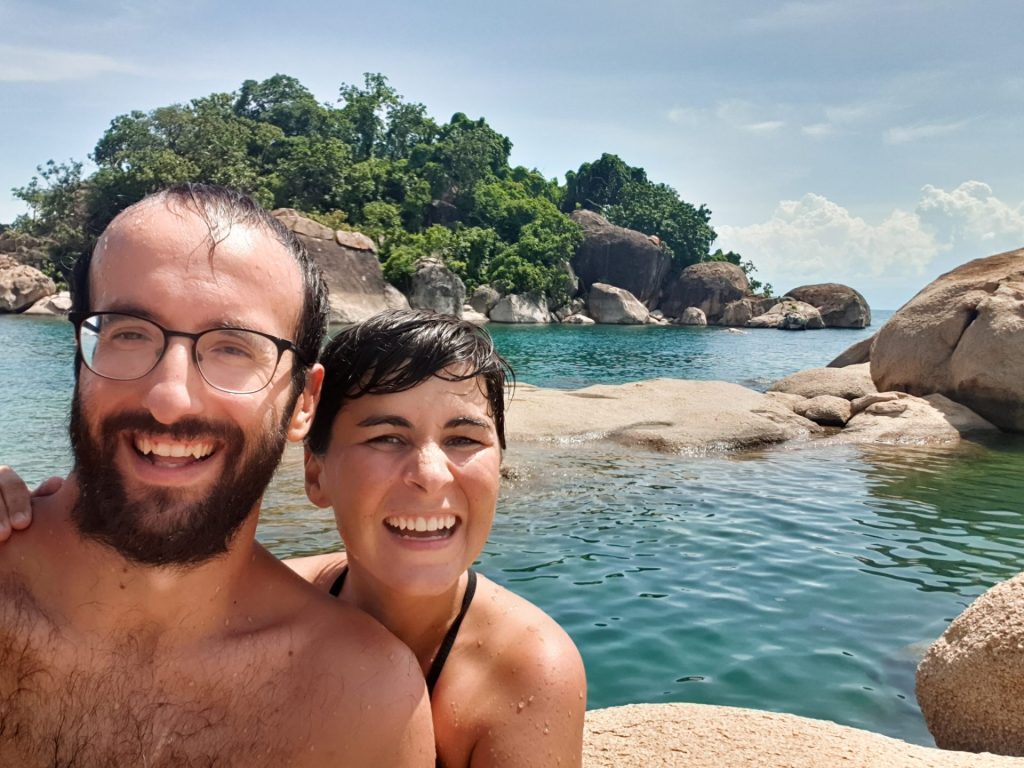
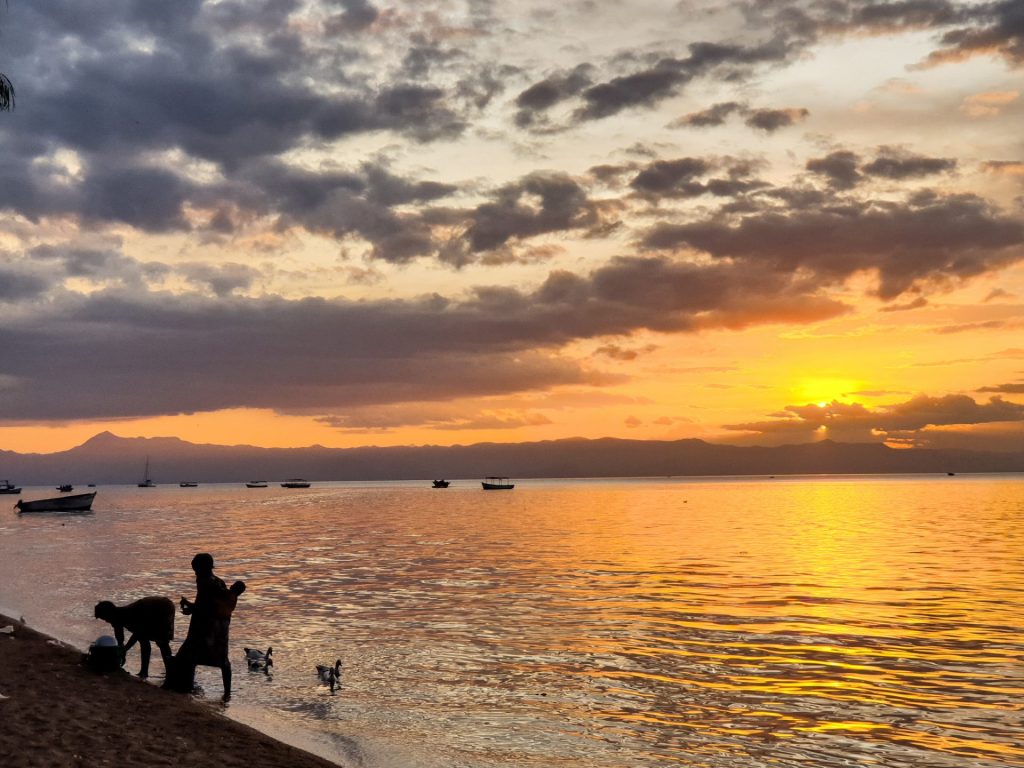
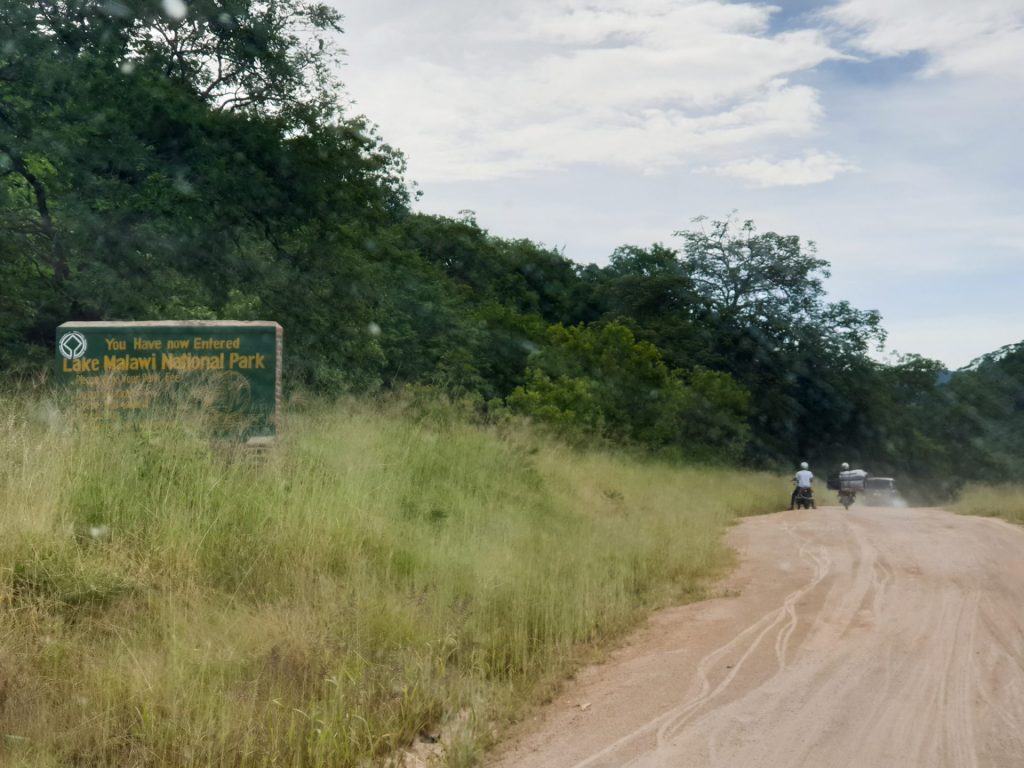
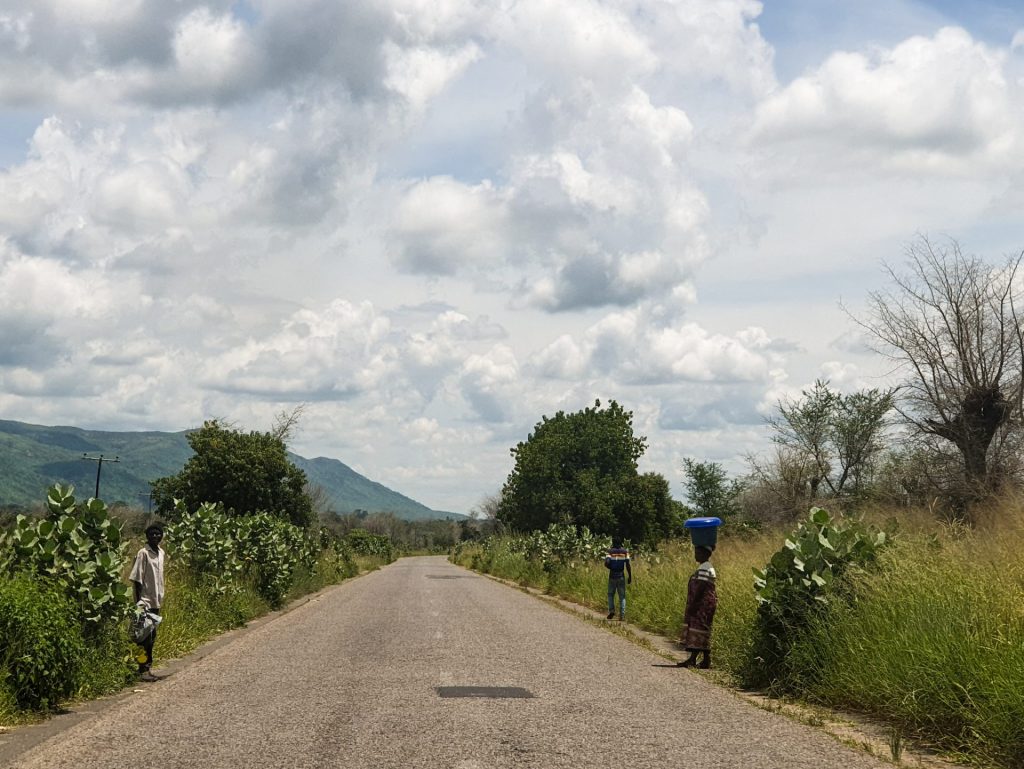
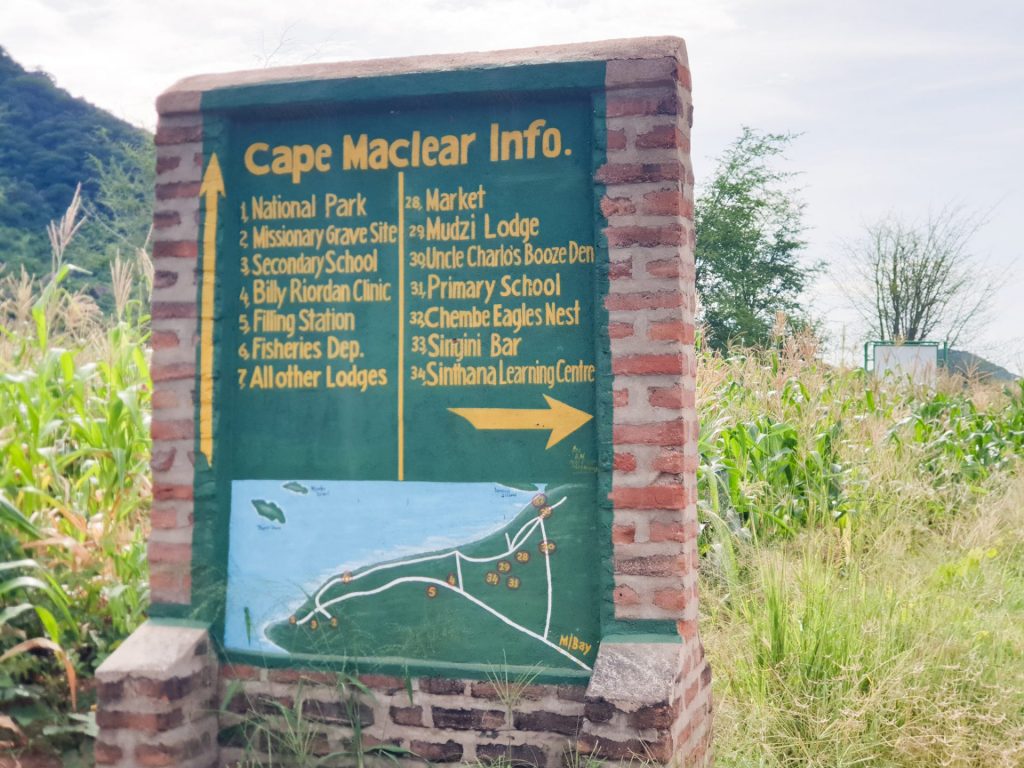

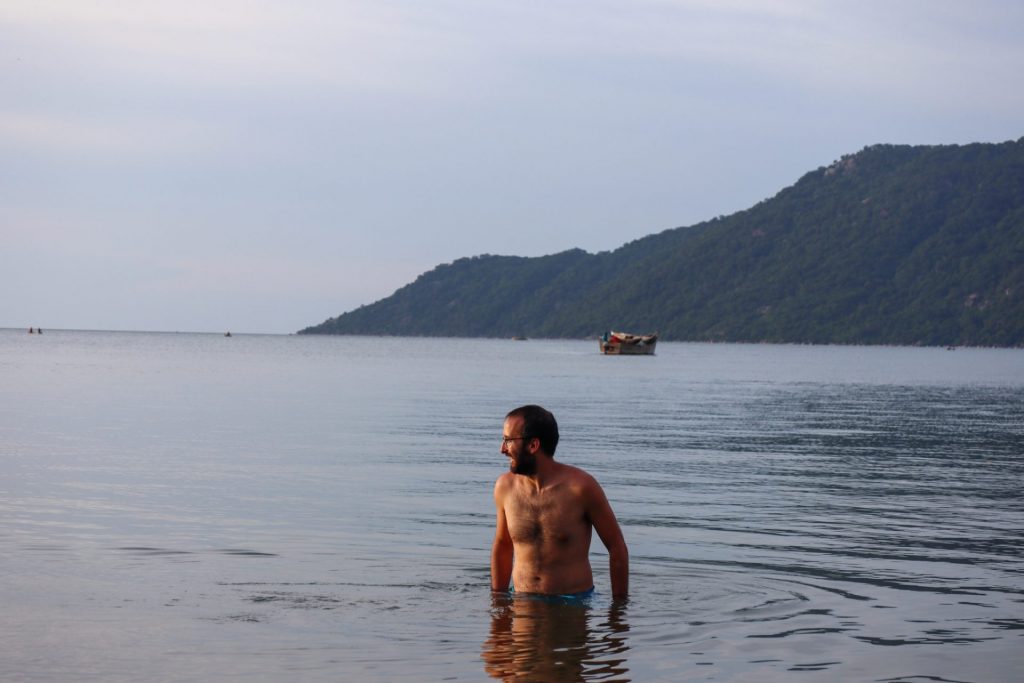
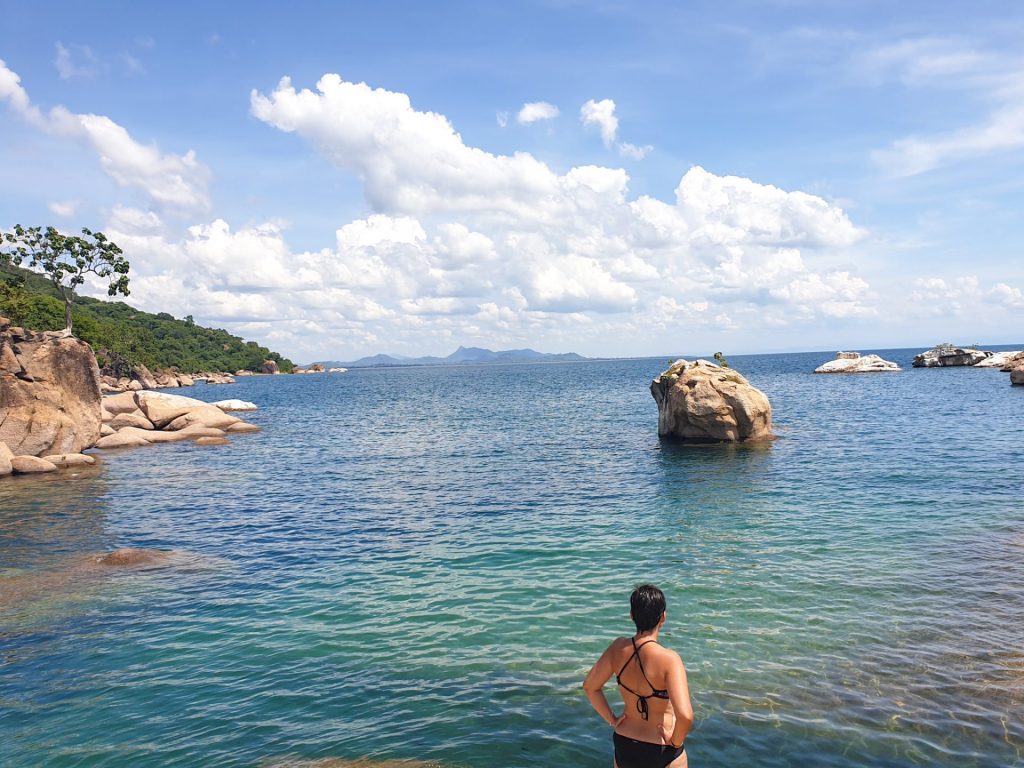


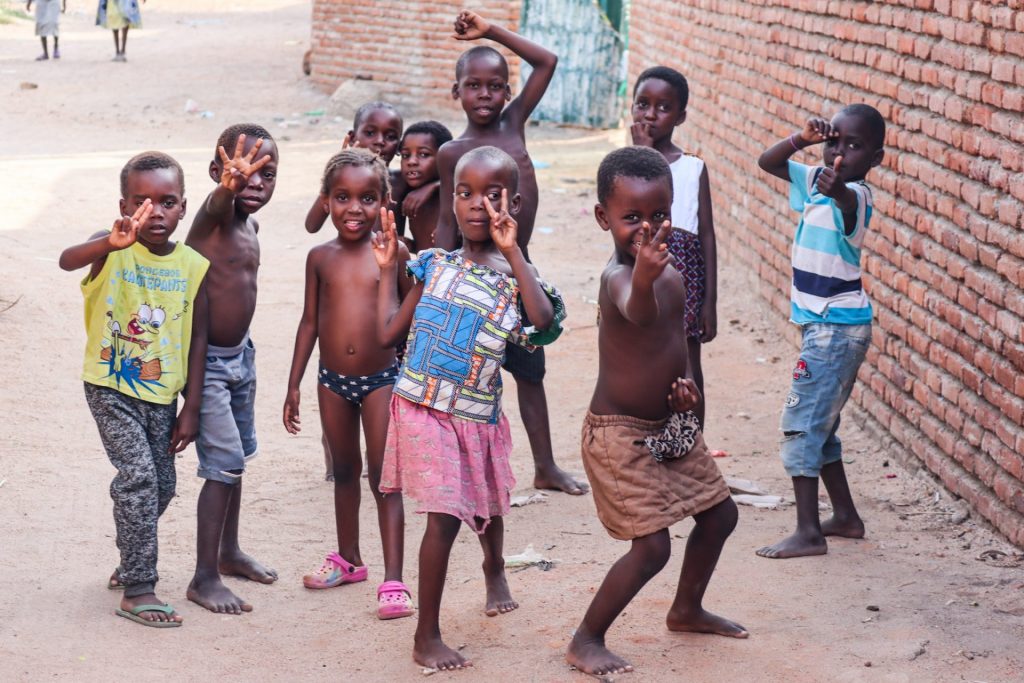
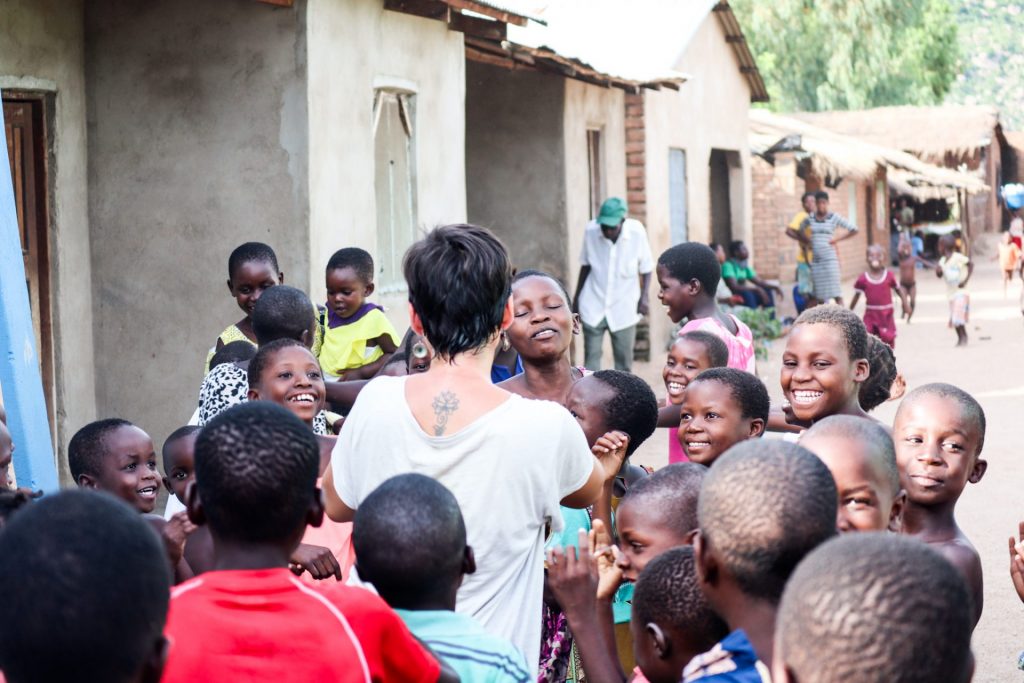
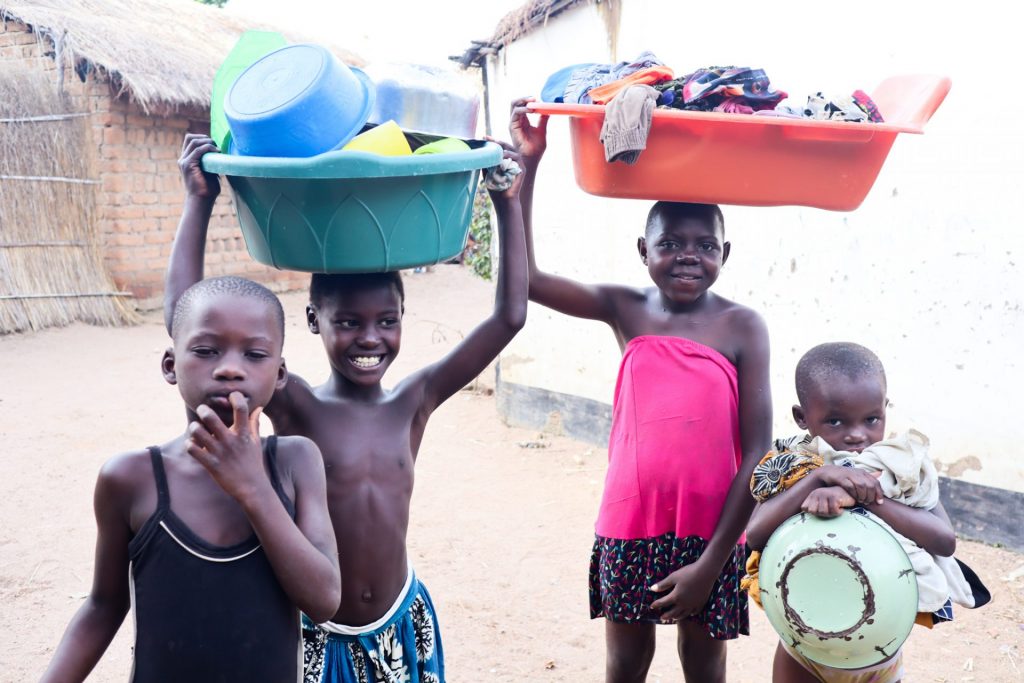
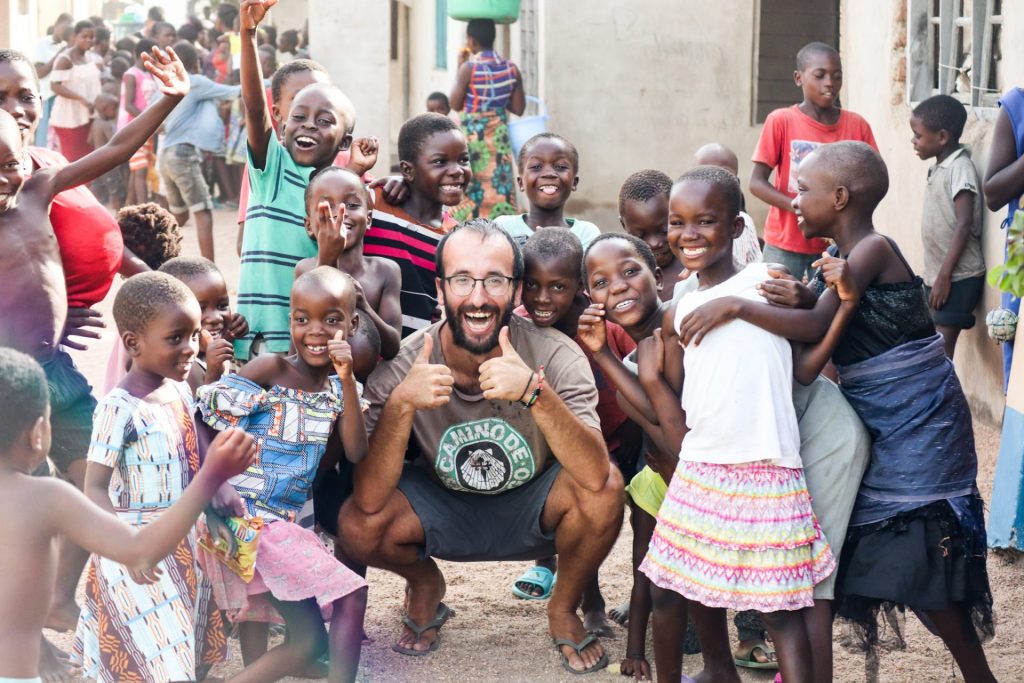
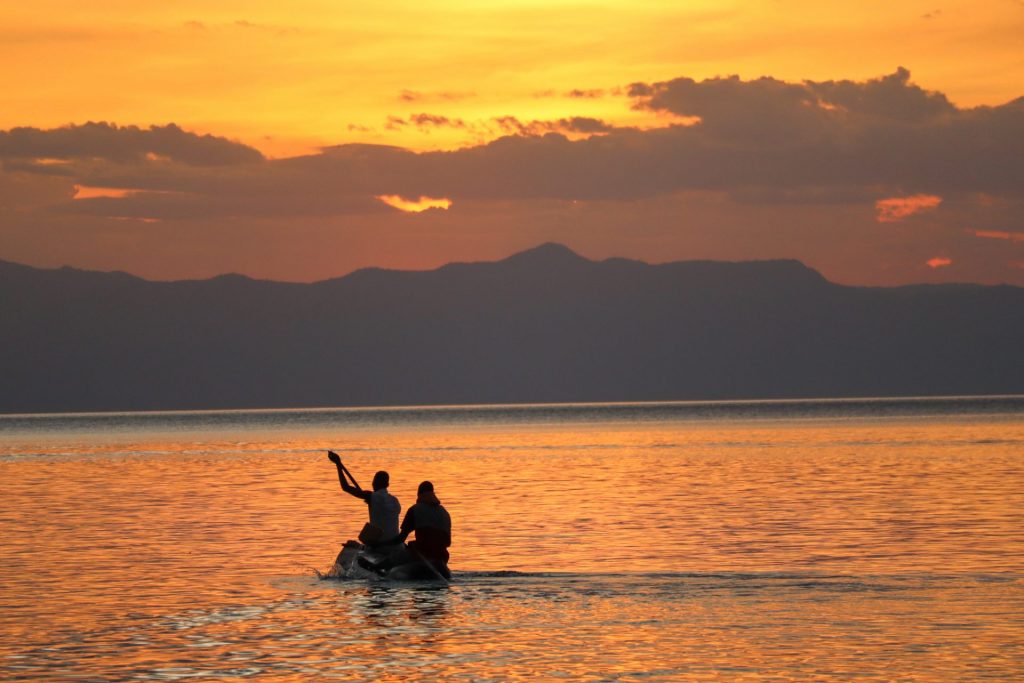

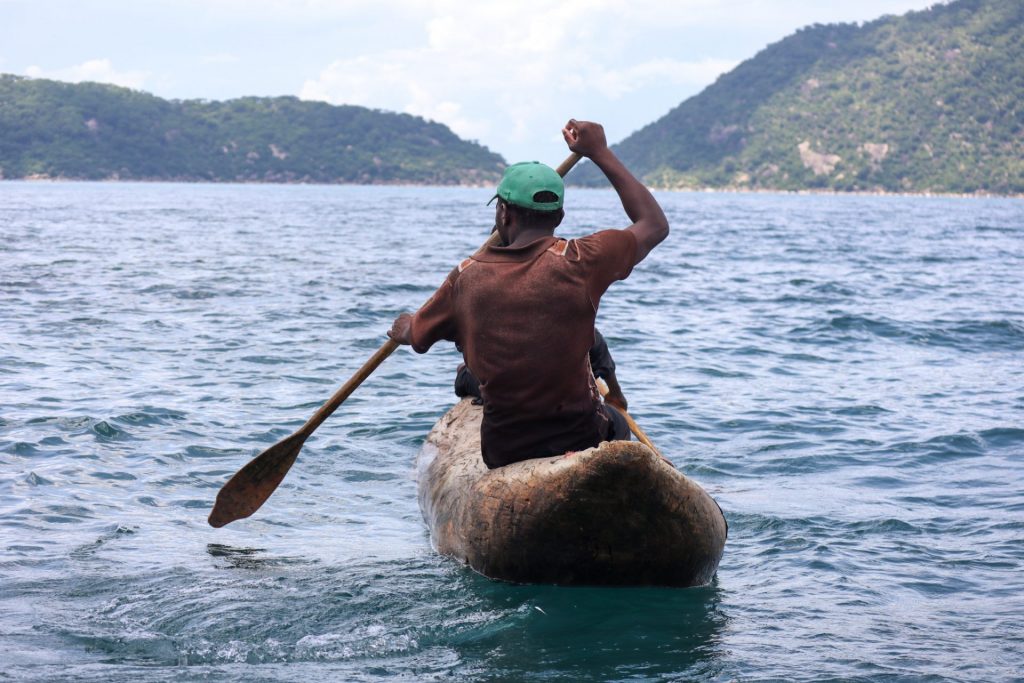
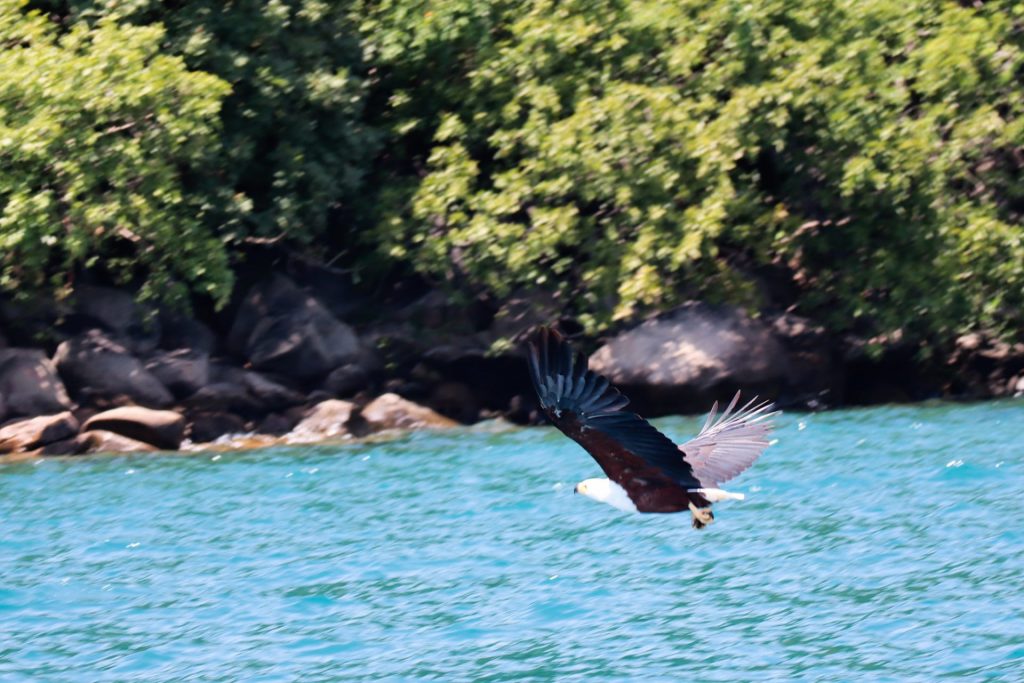

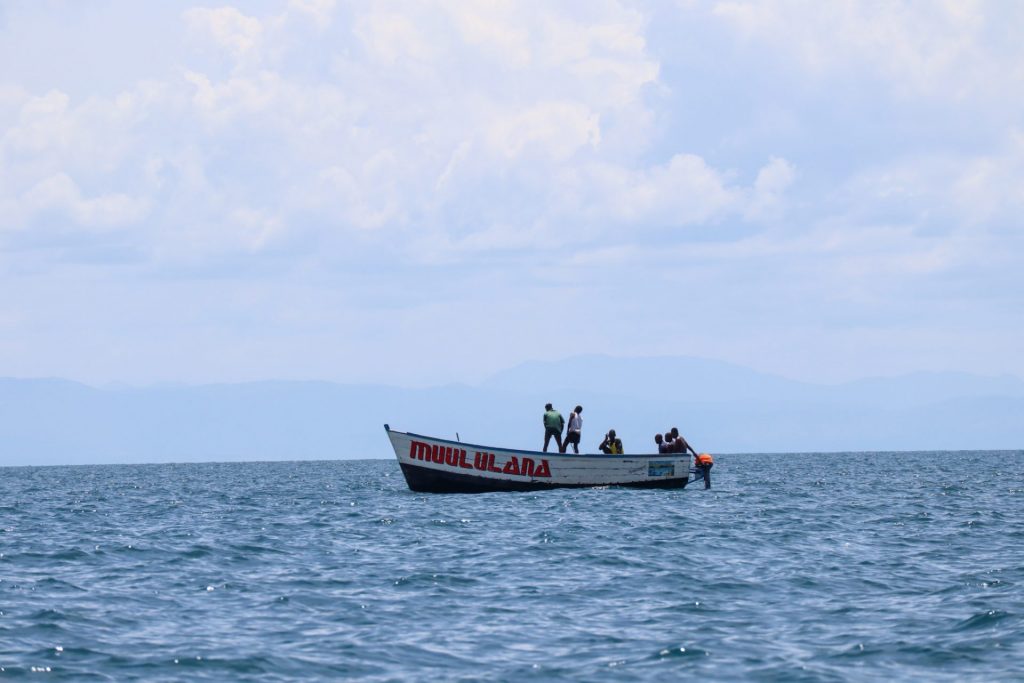
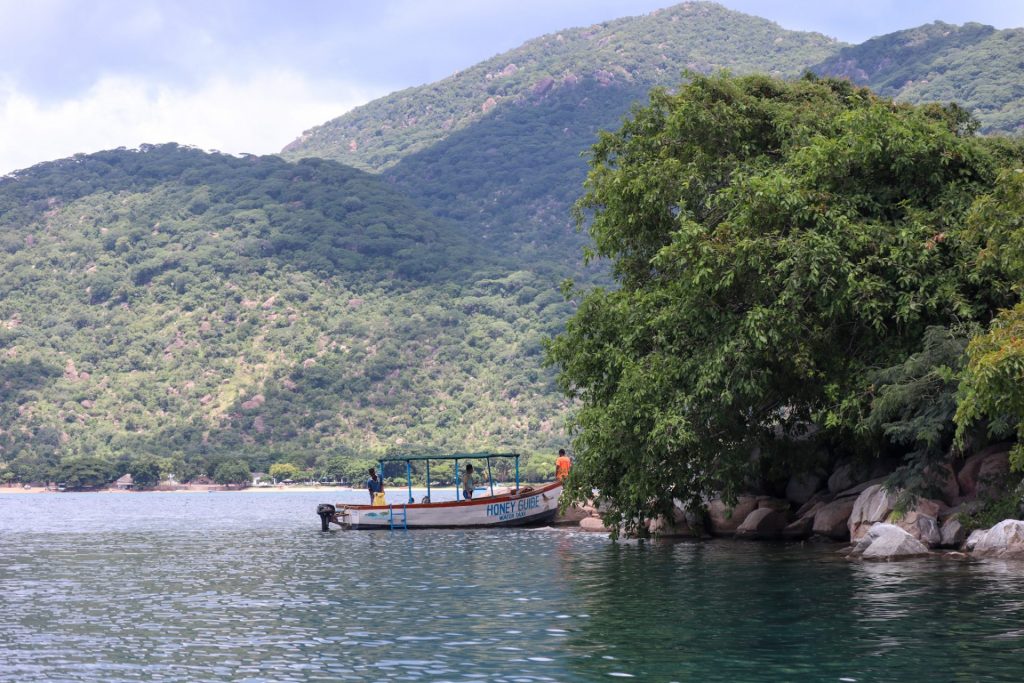
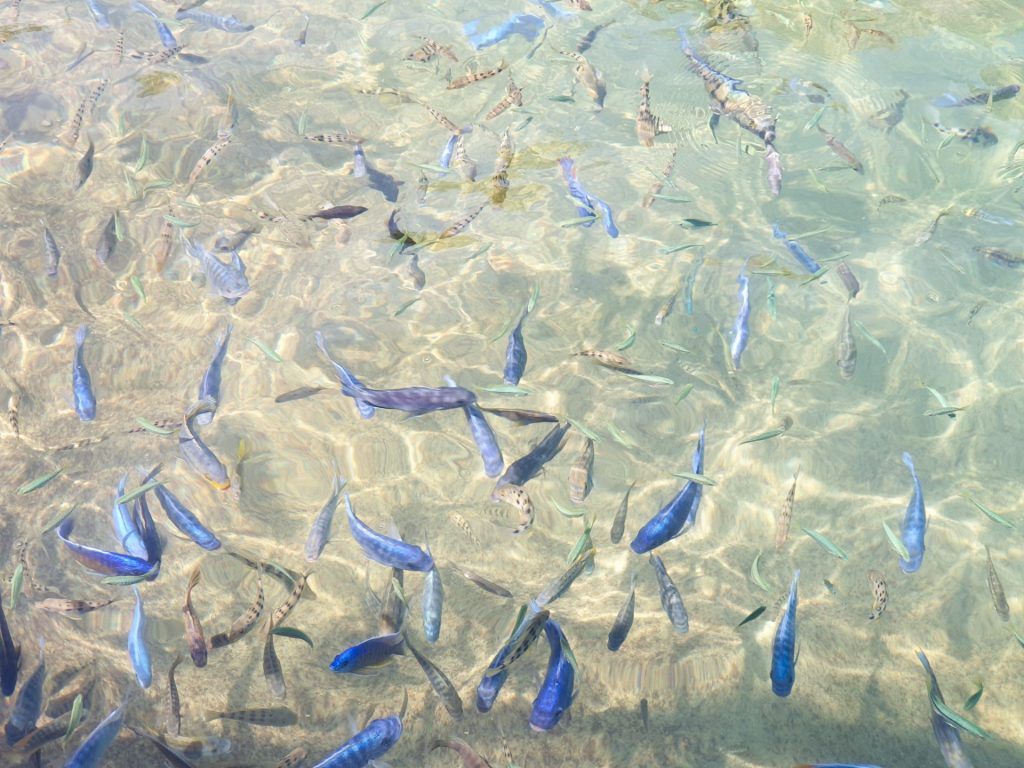

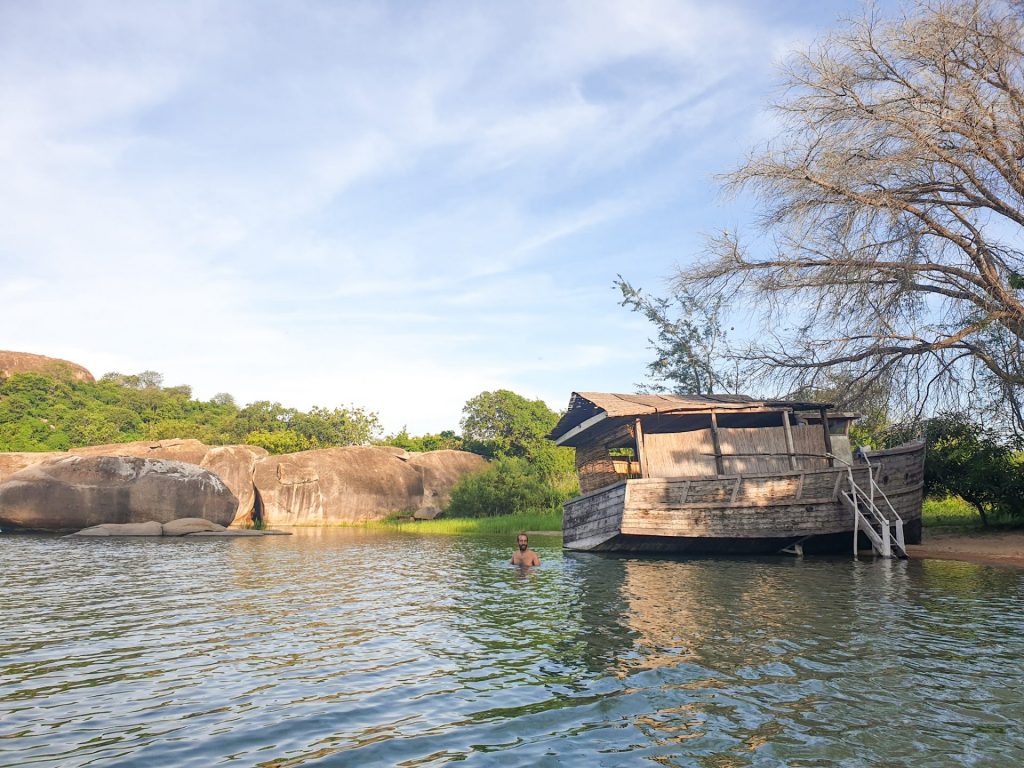
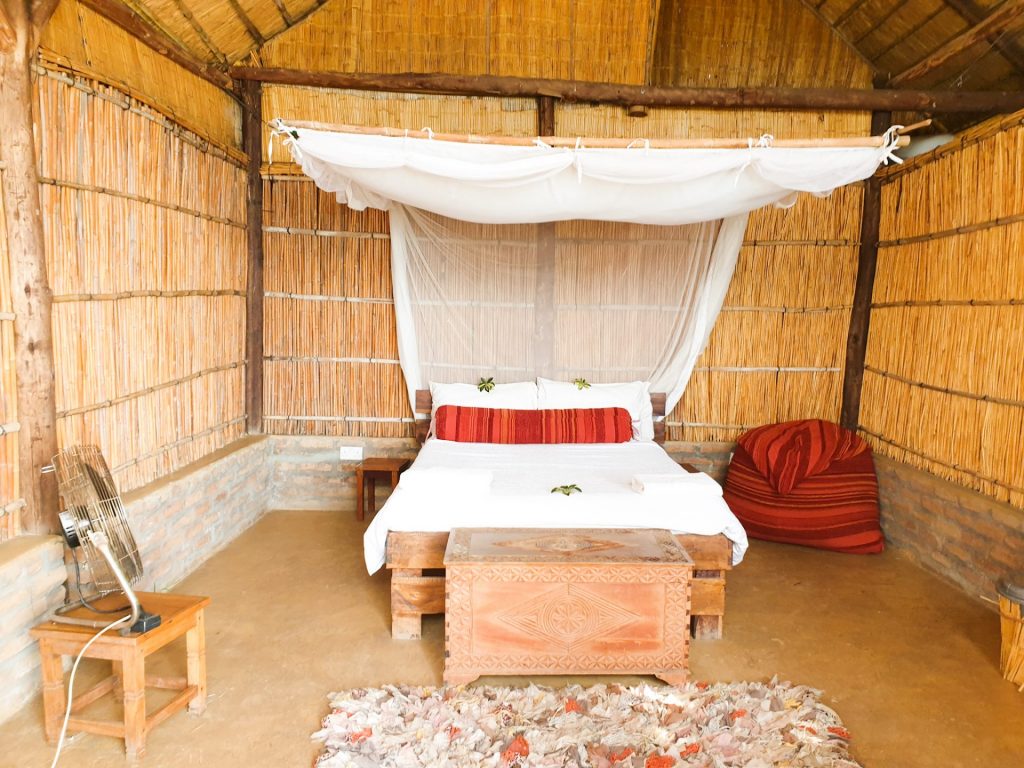
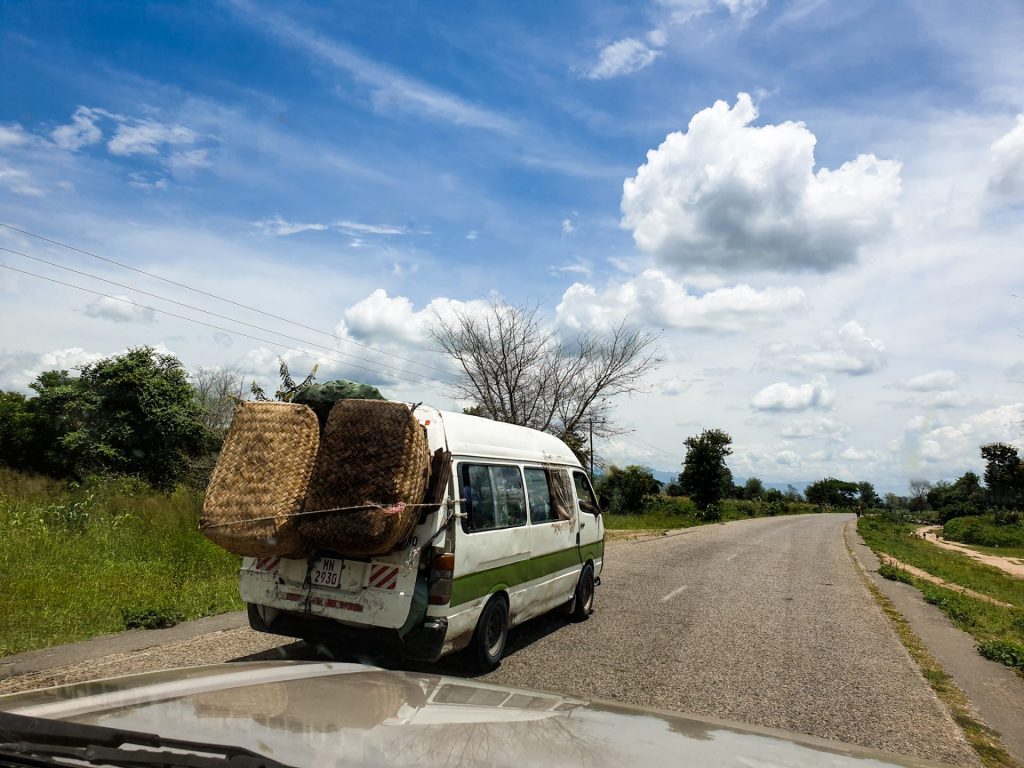
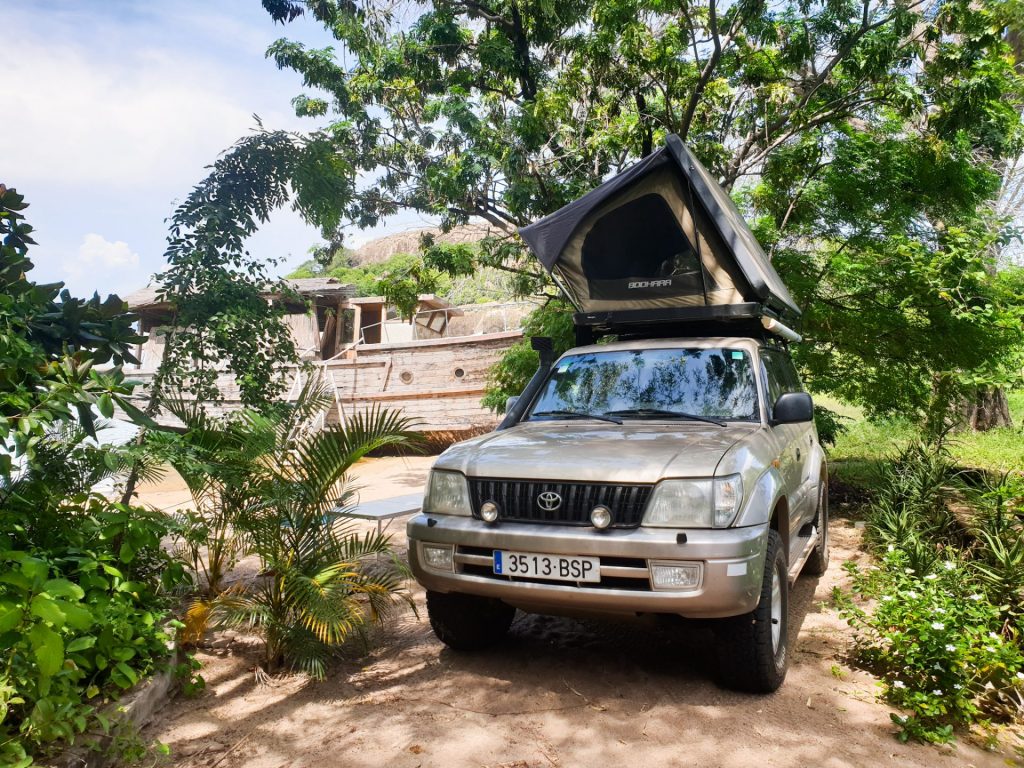
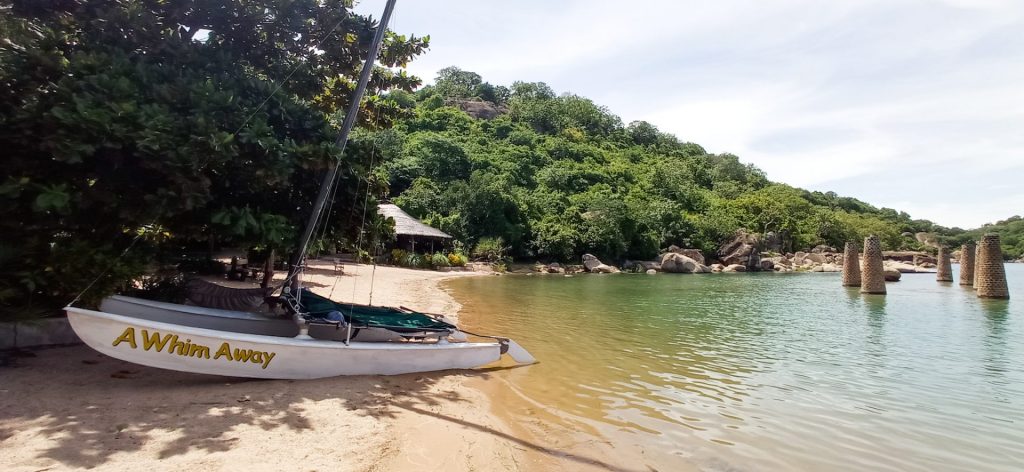

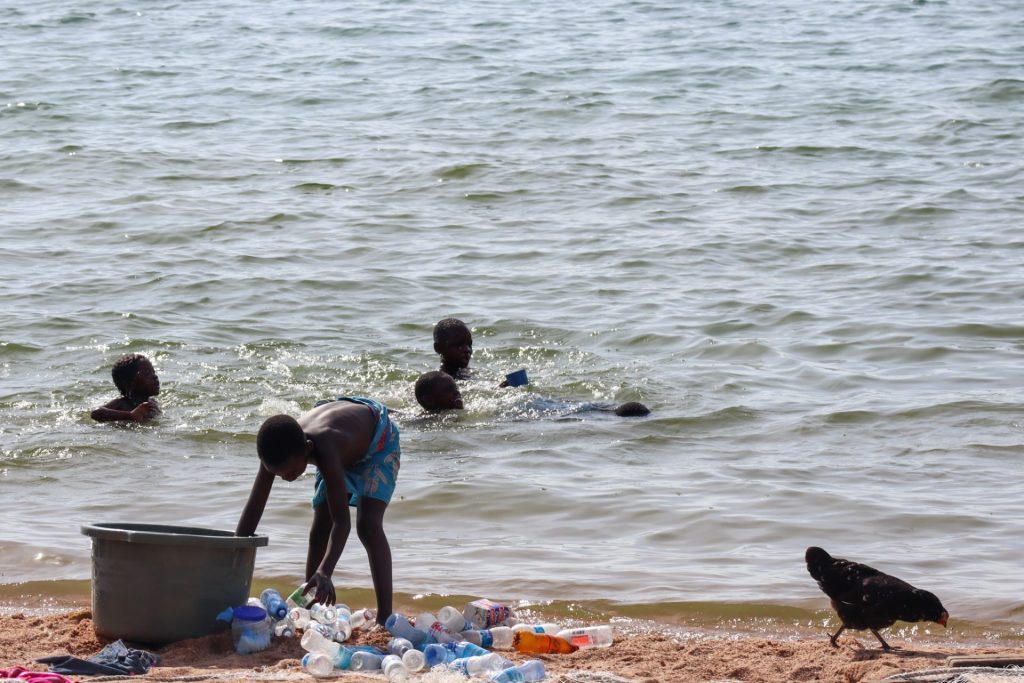
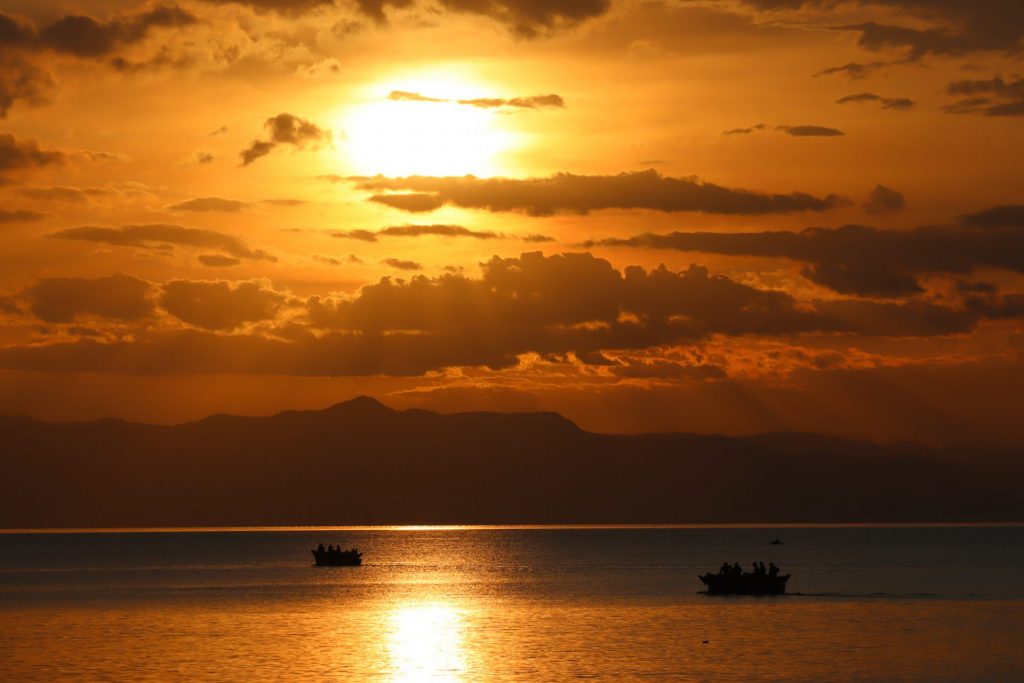
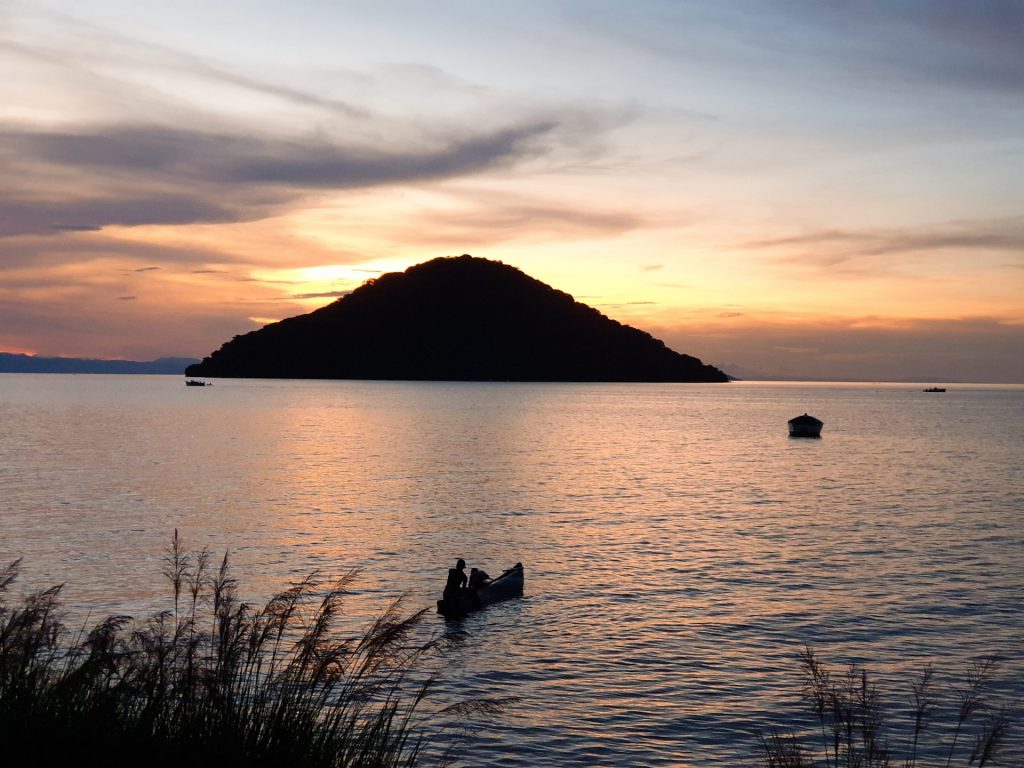
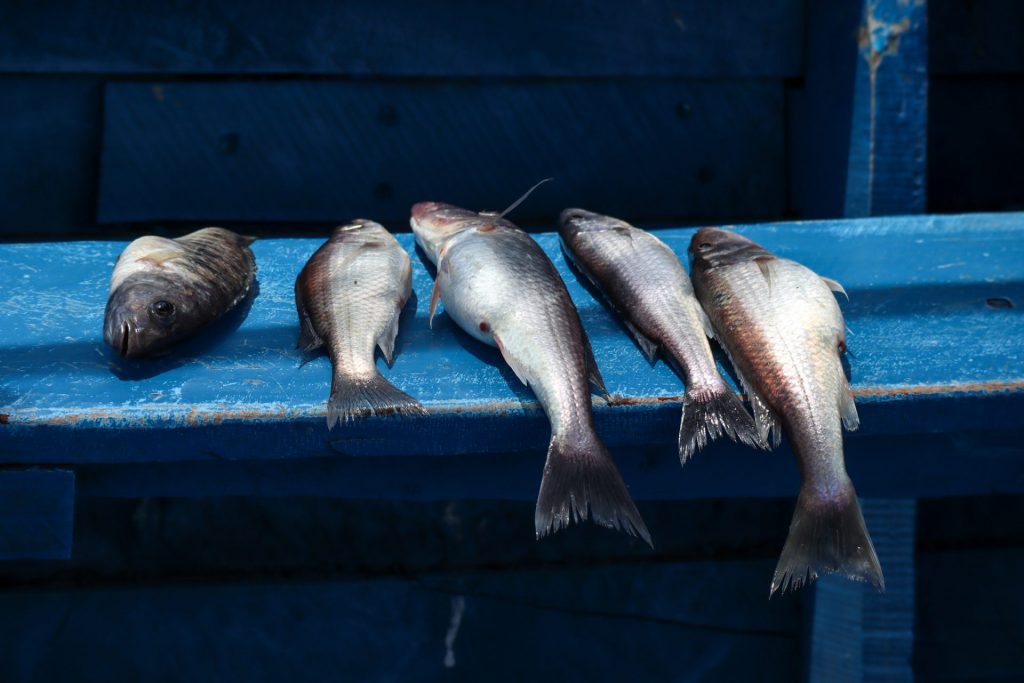
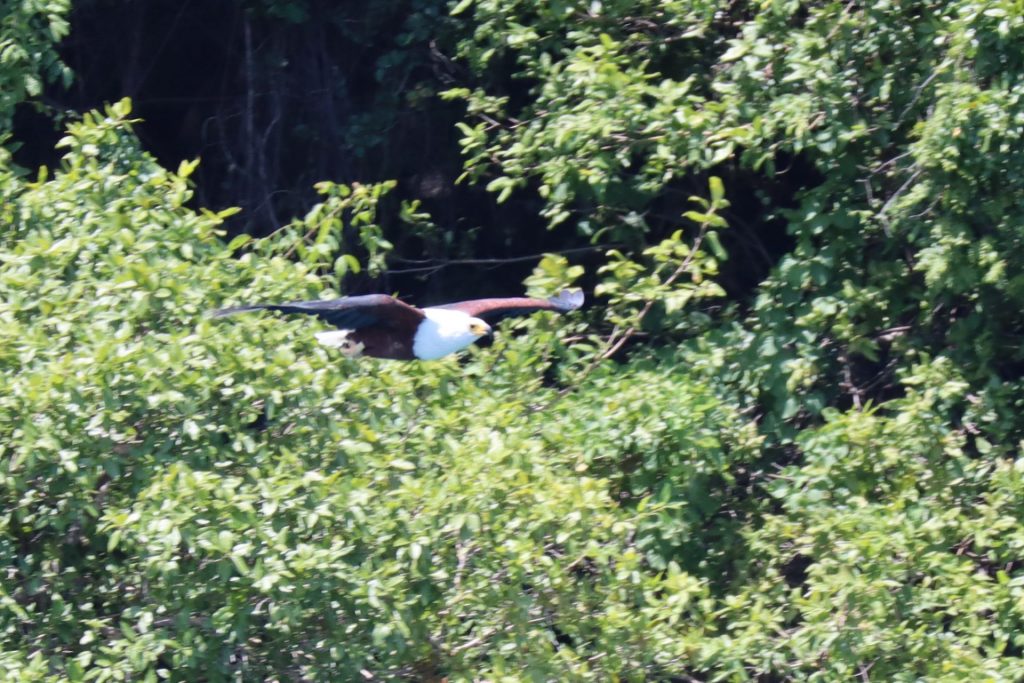
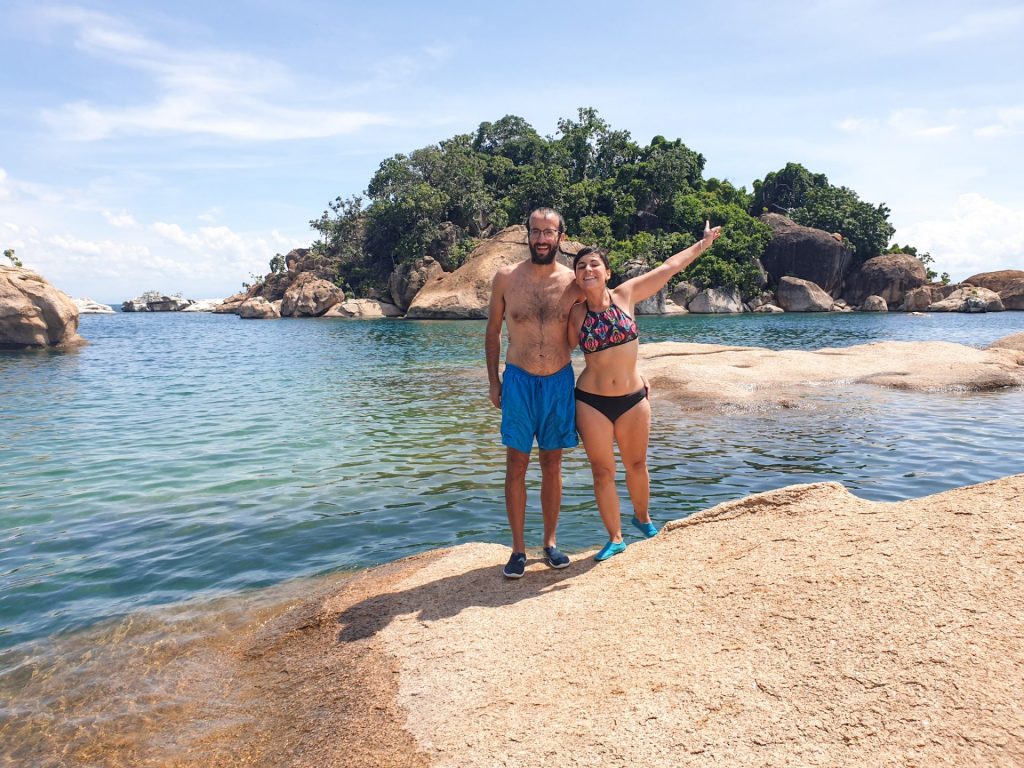

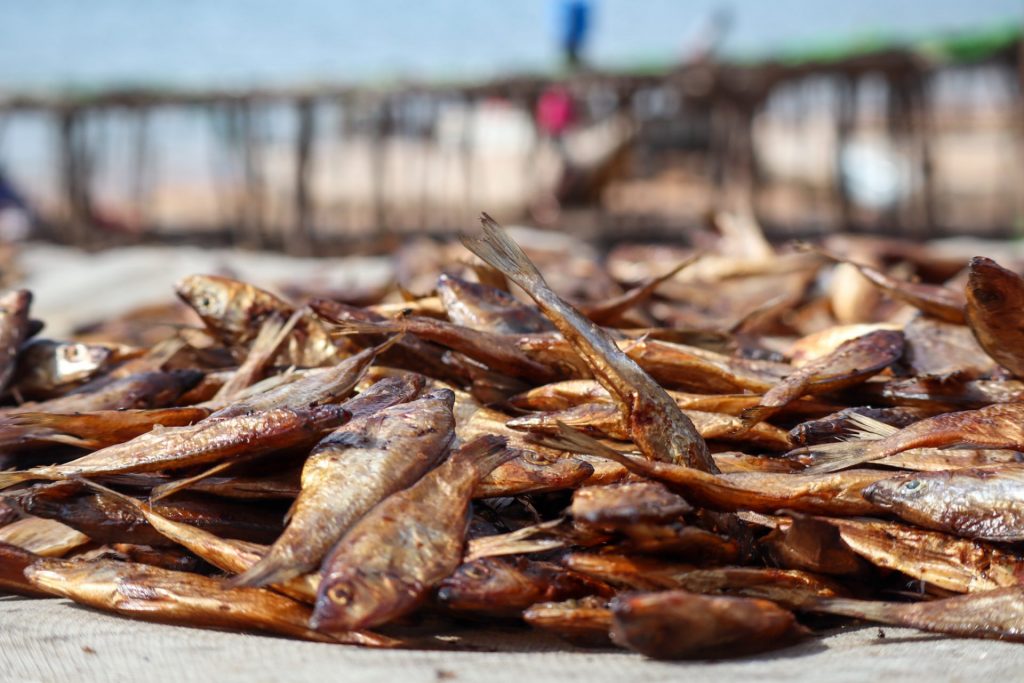
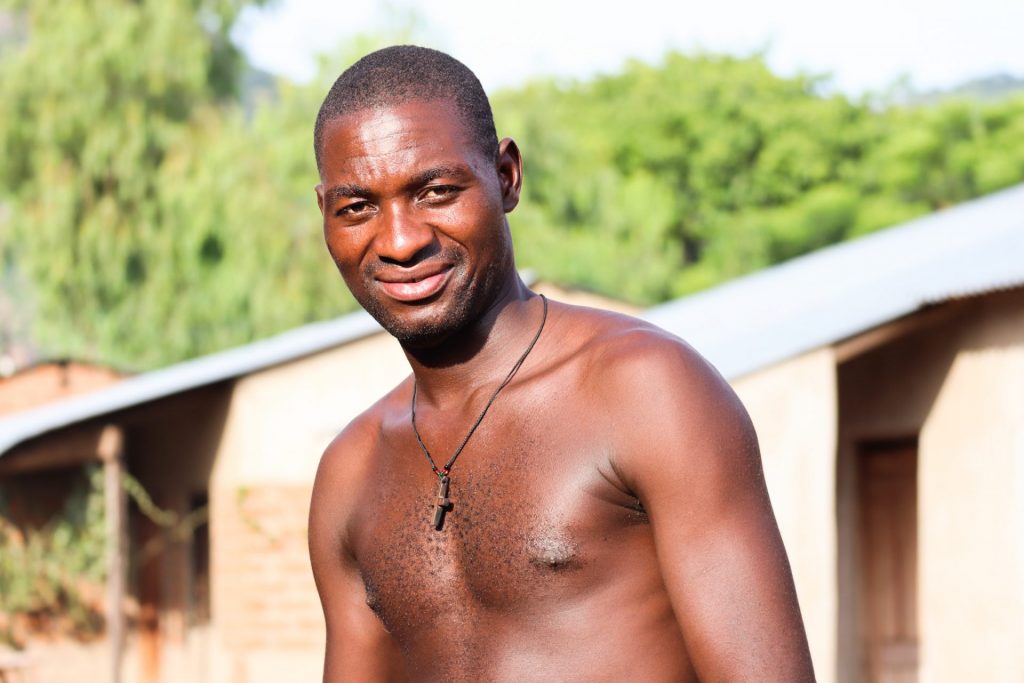
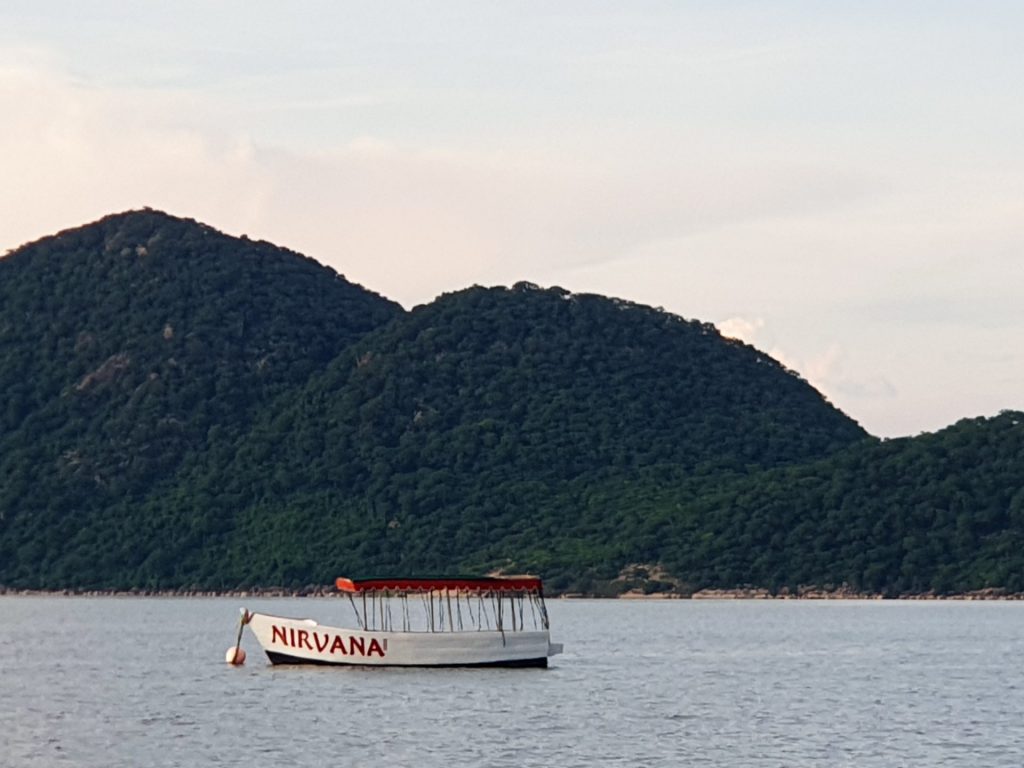
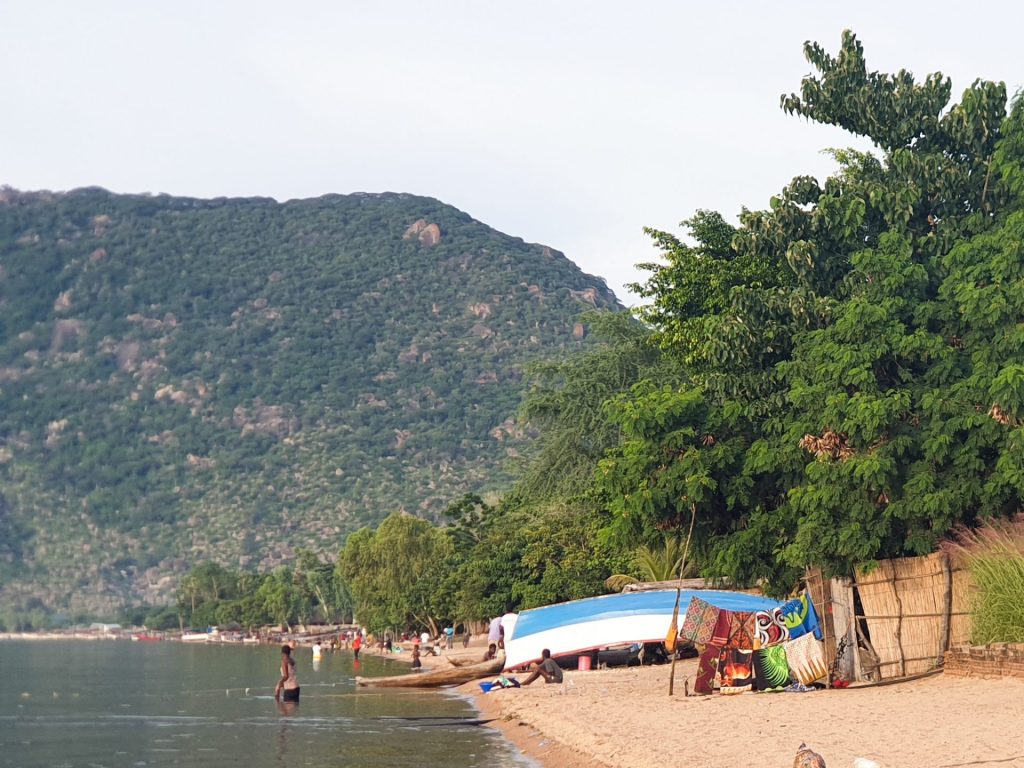
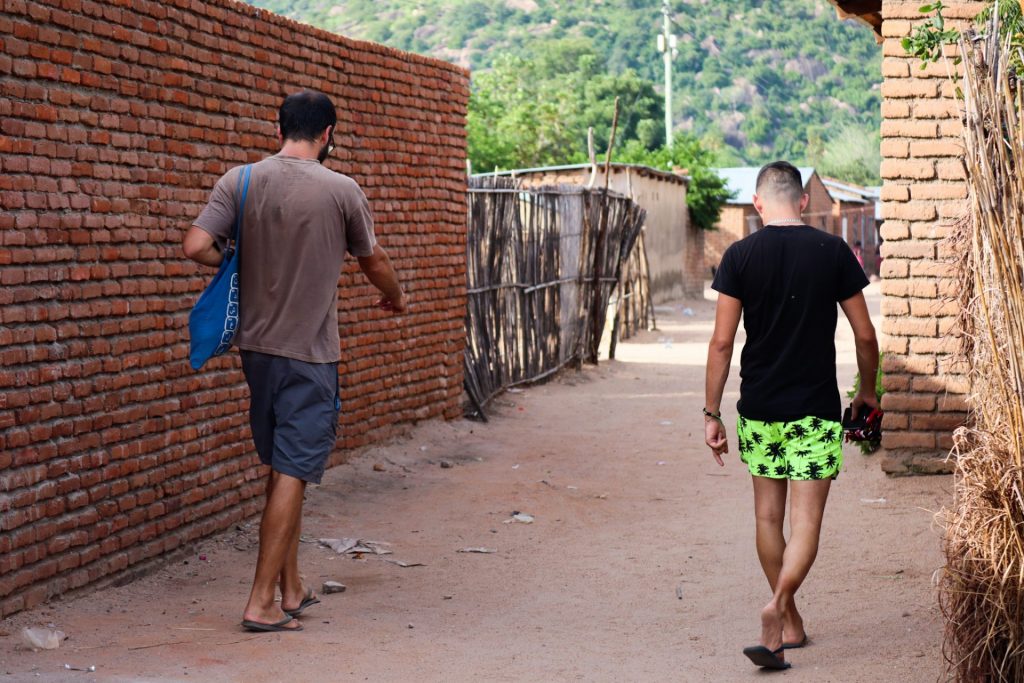
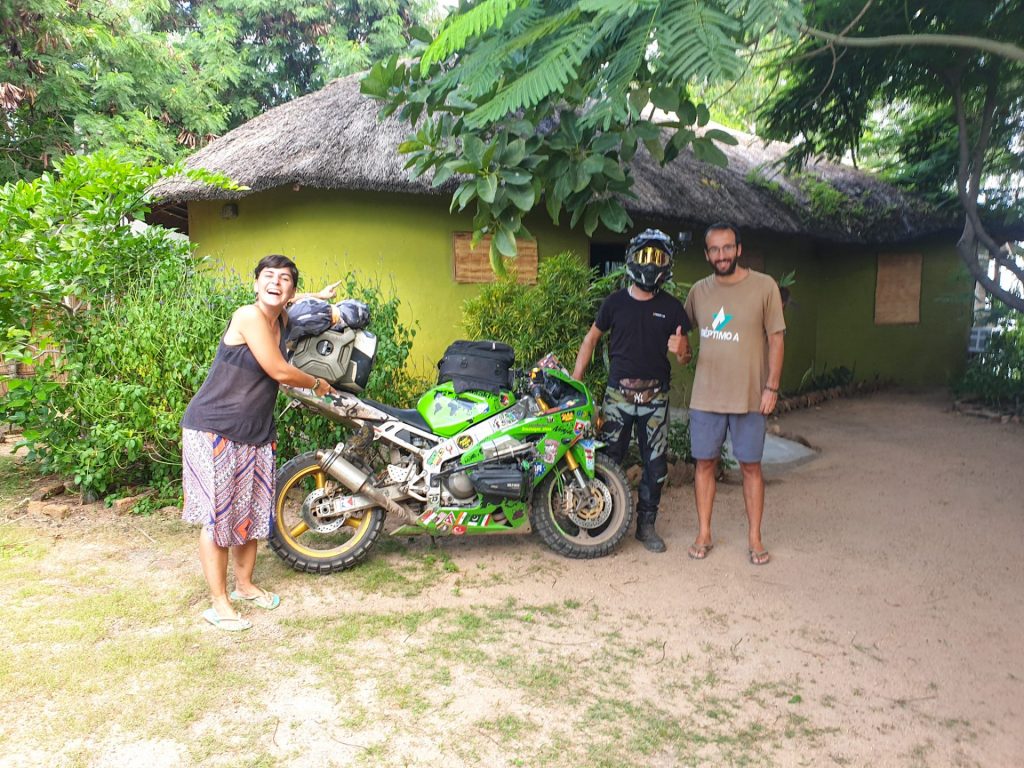
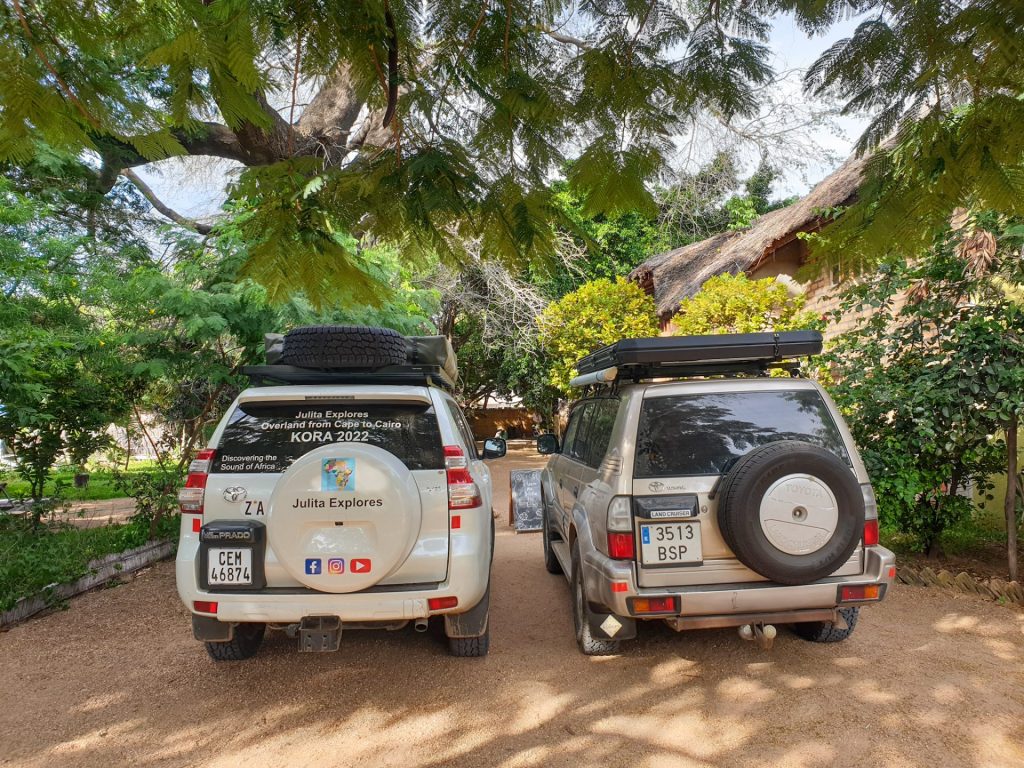
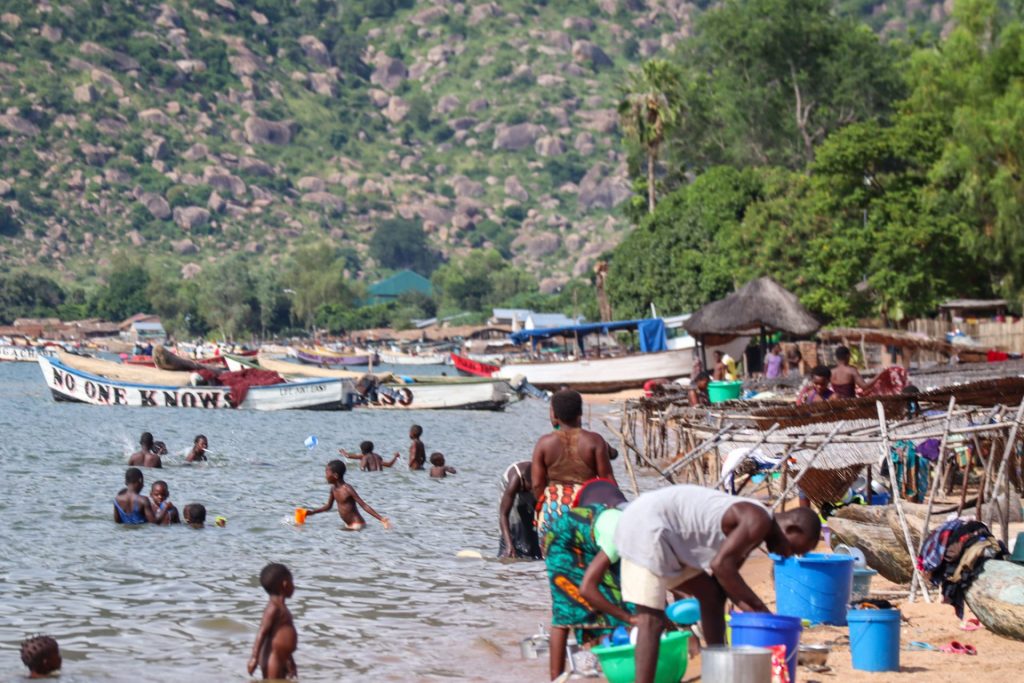
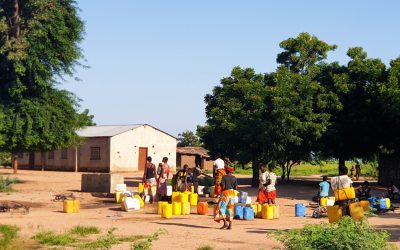
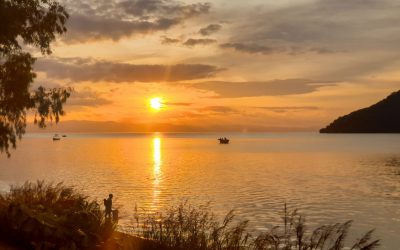
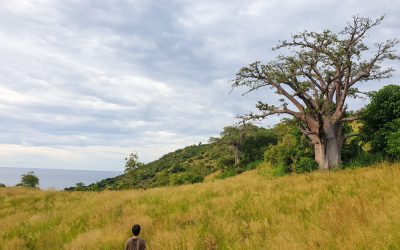
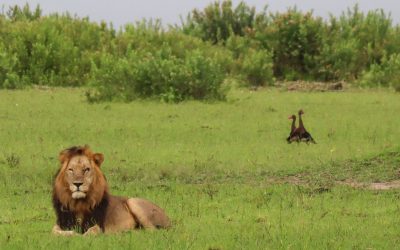
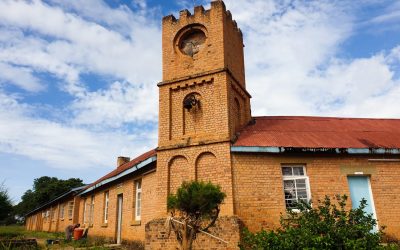
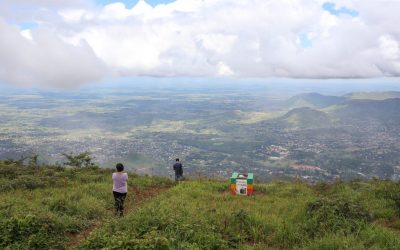
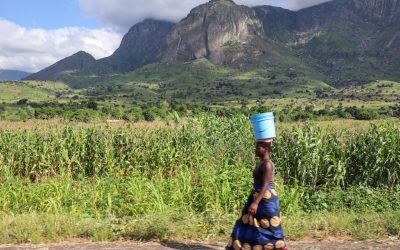
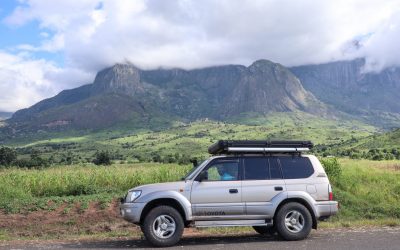
0 Comments